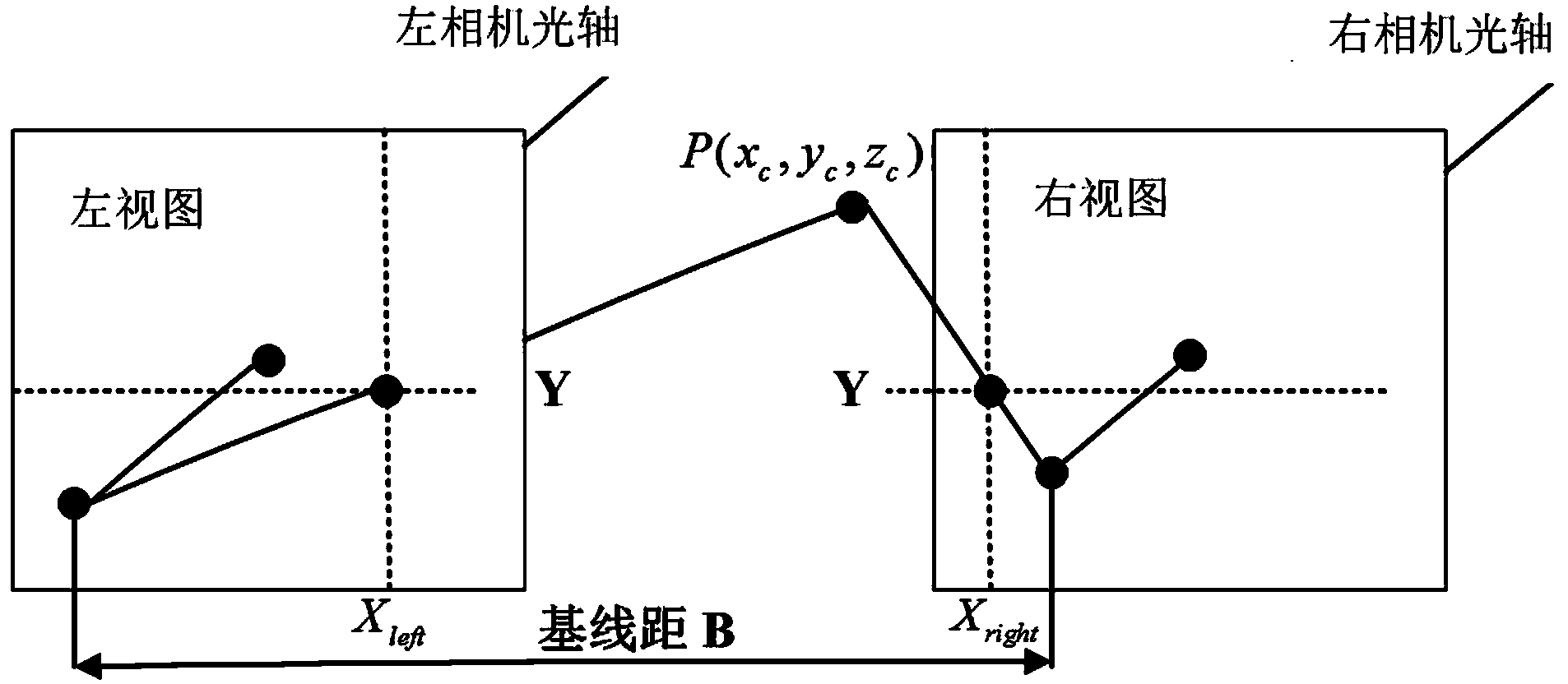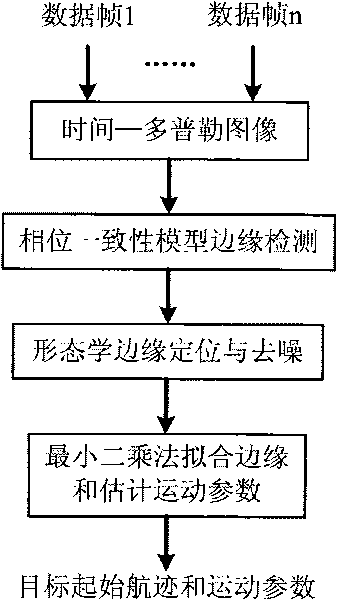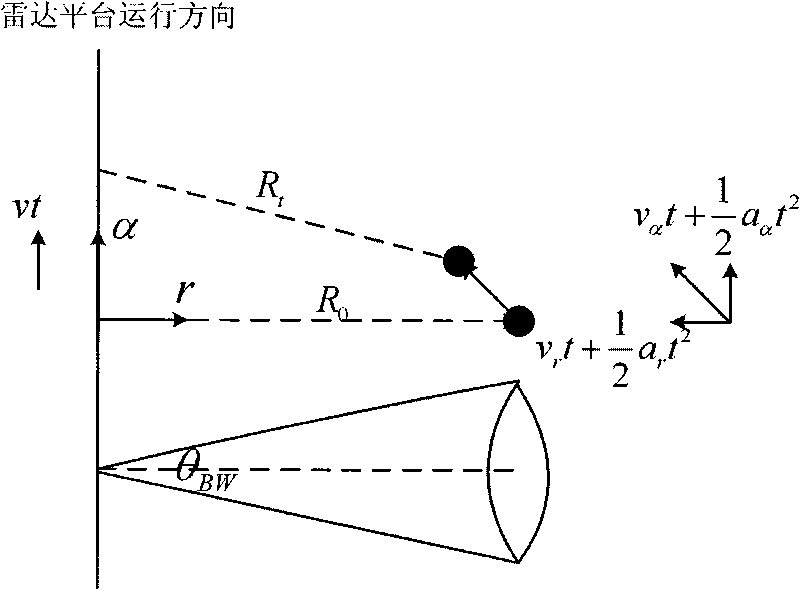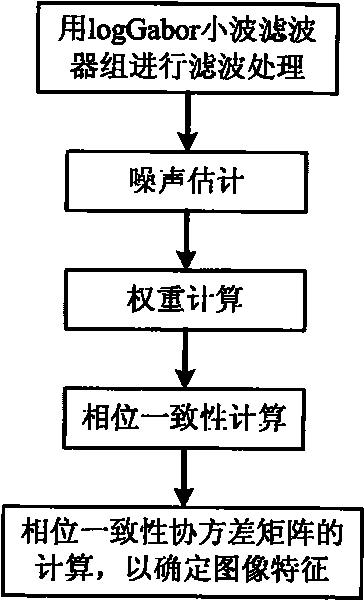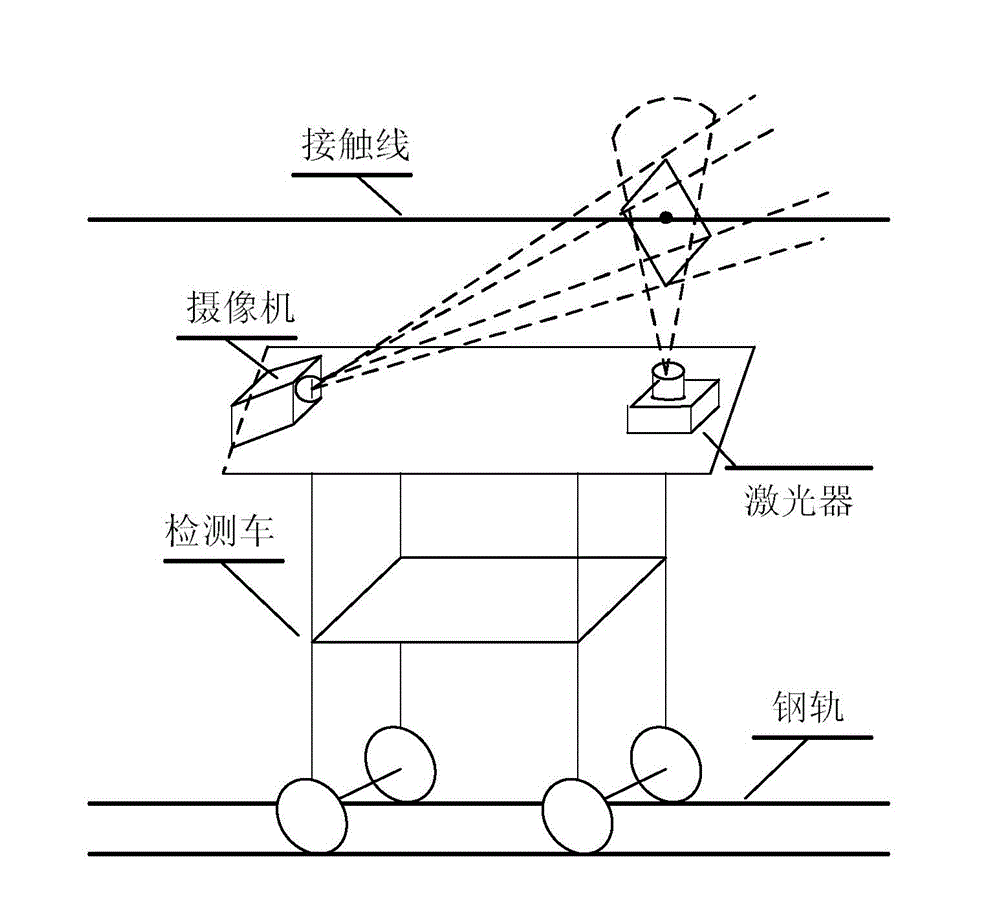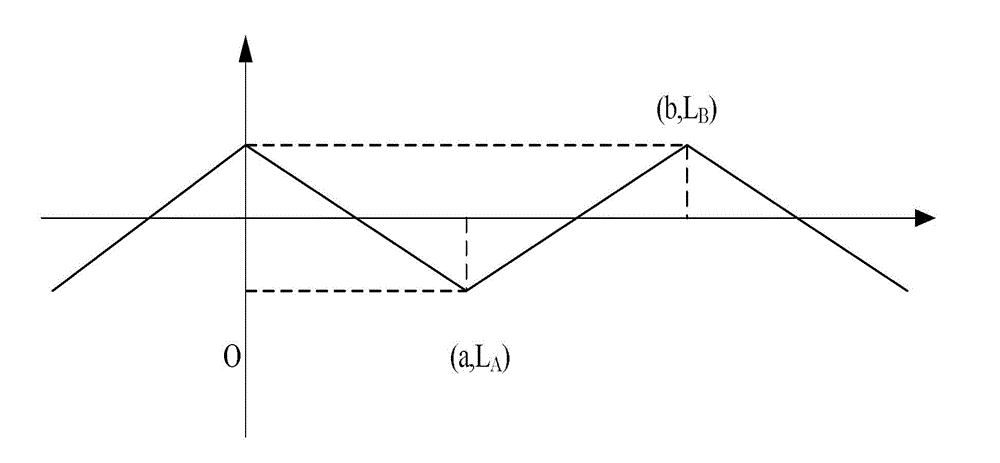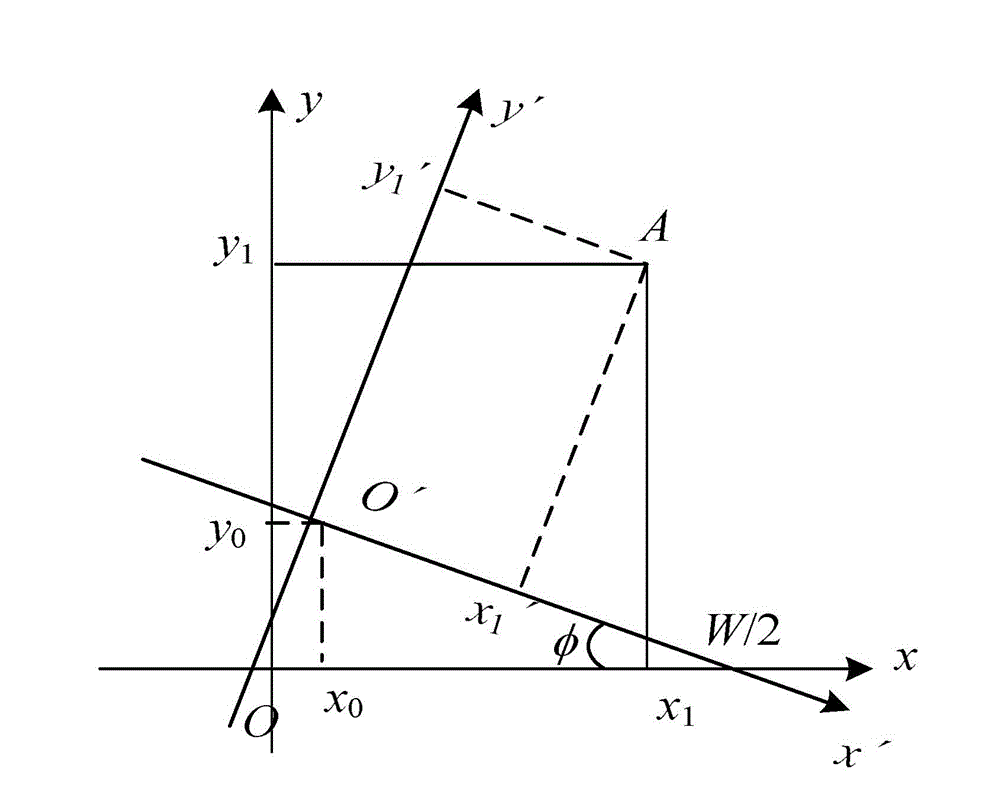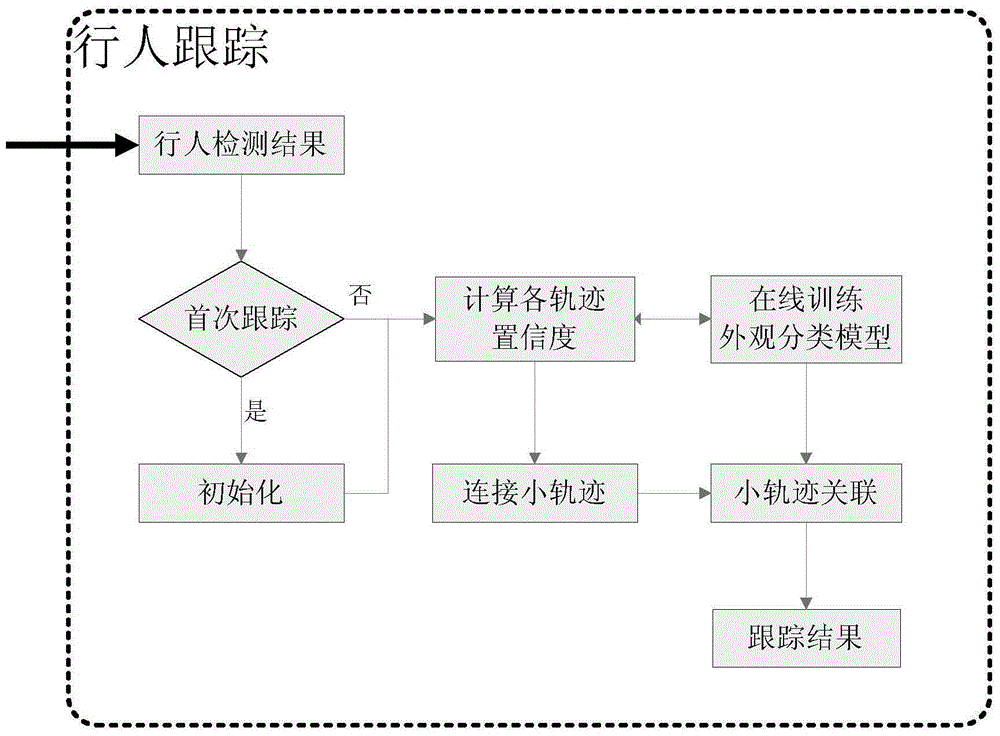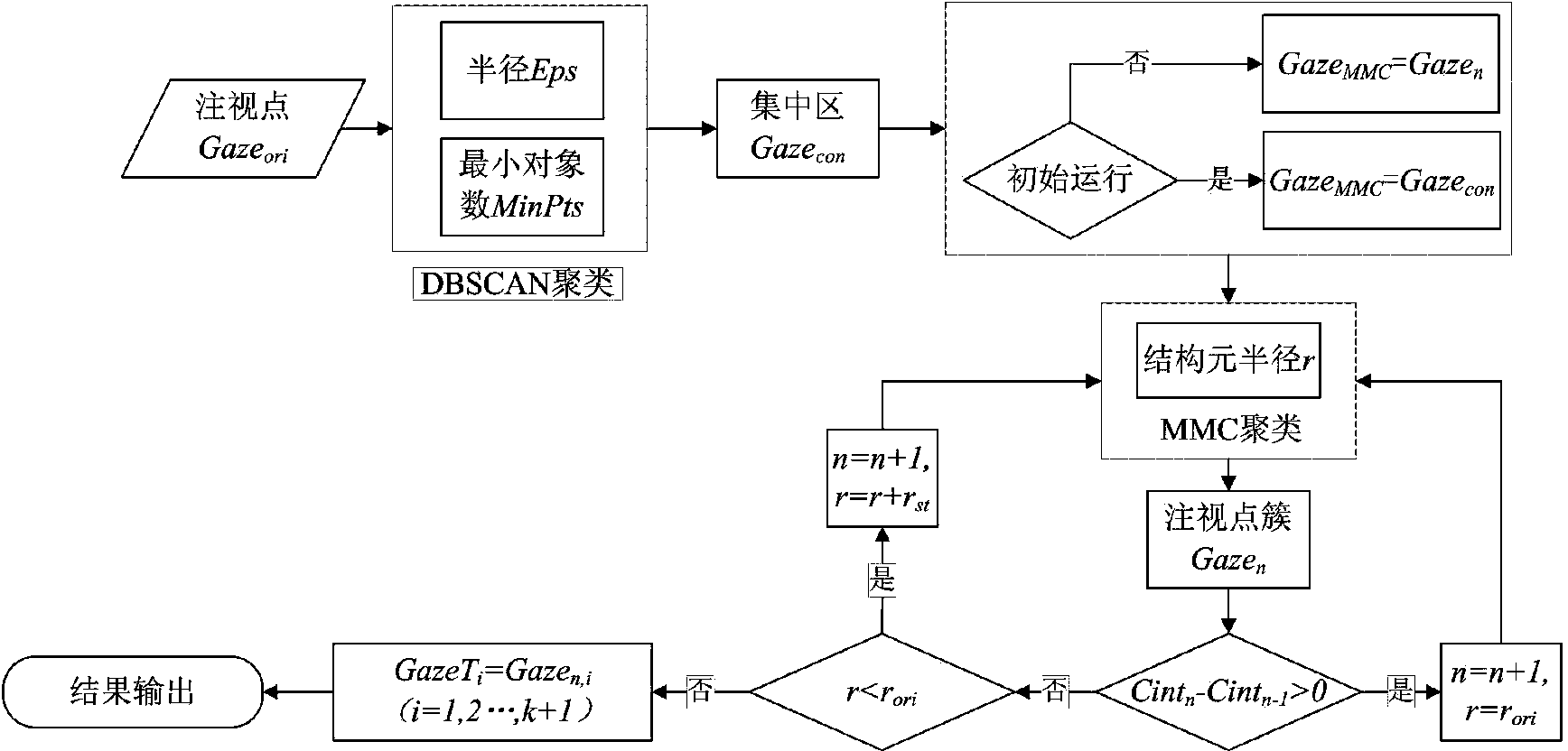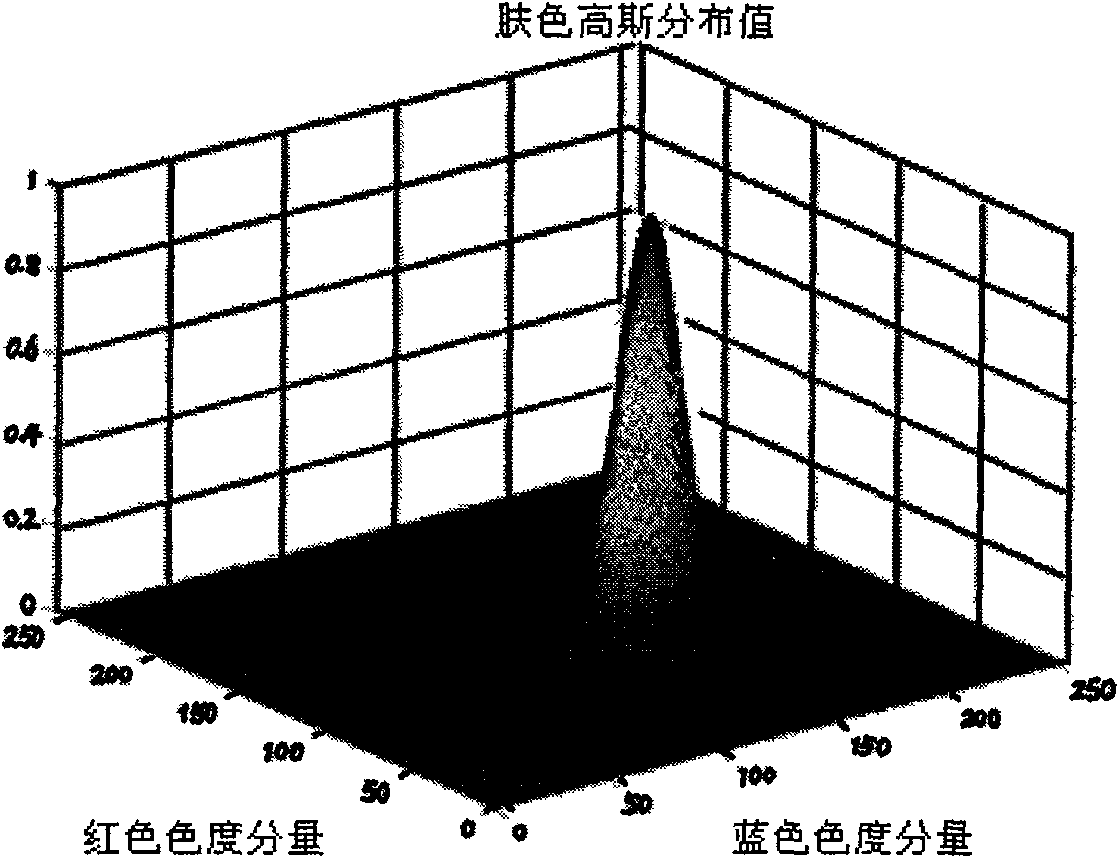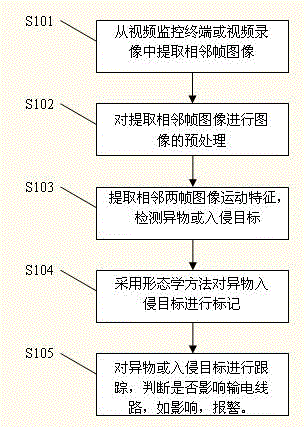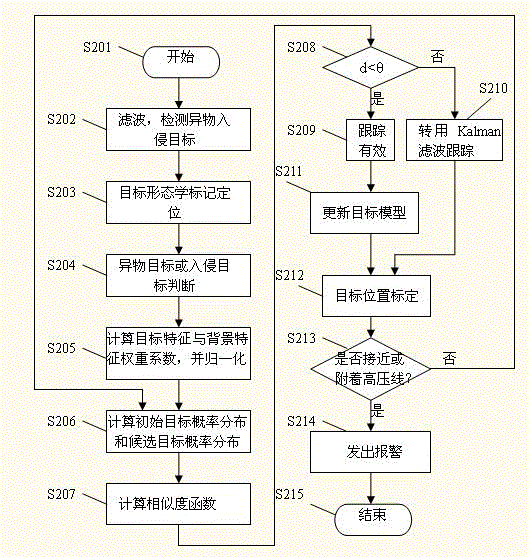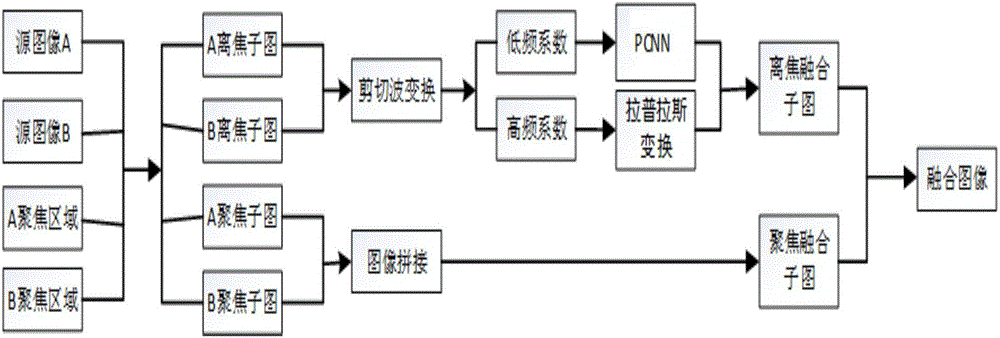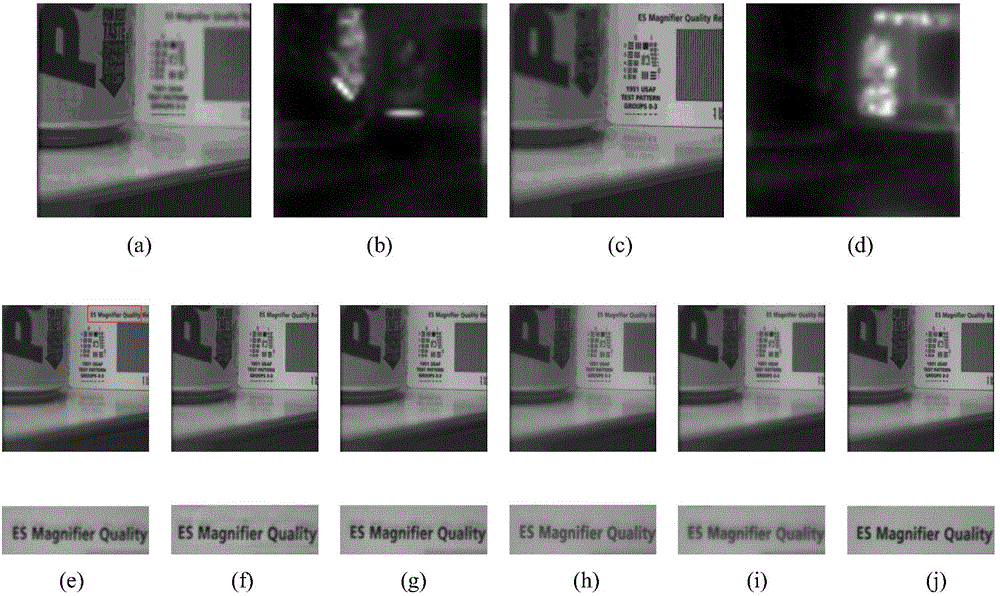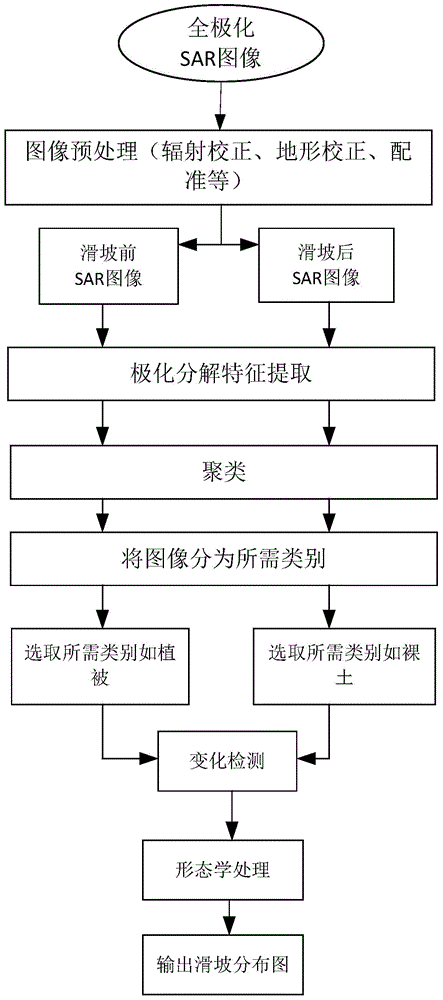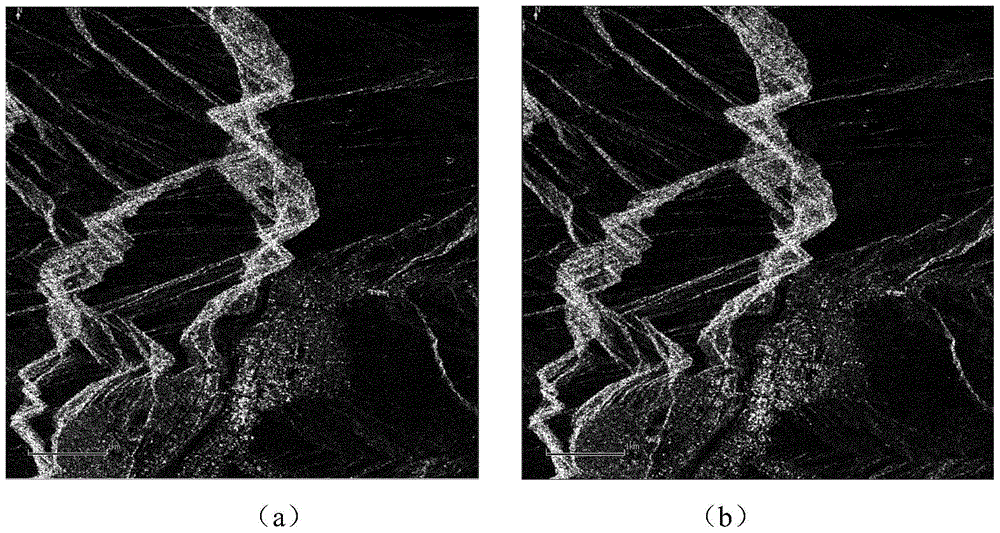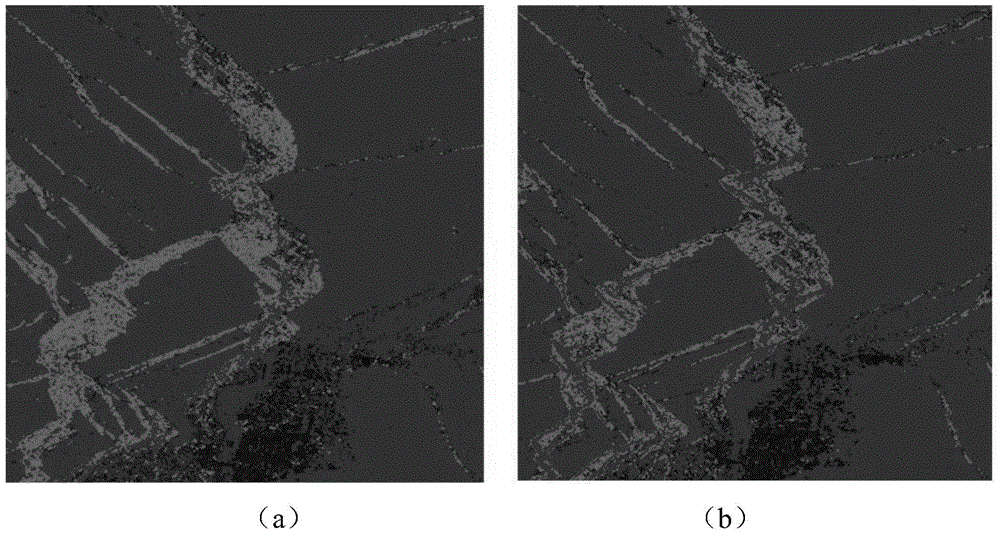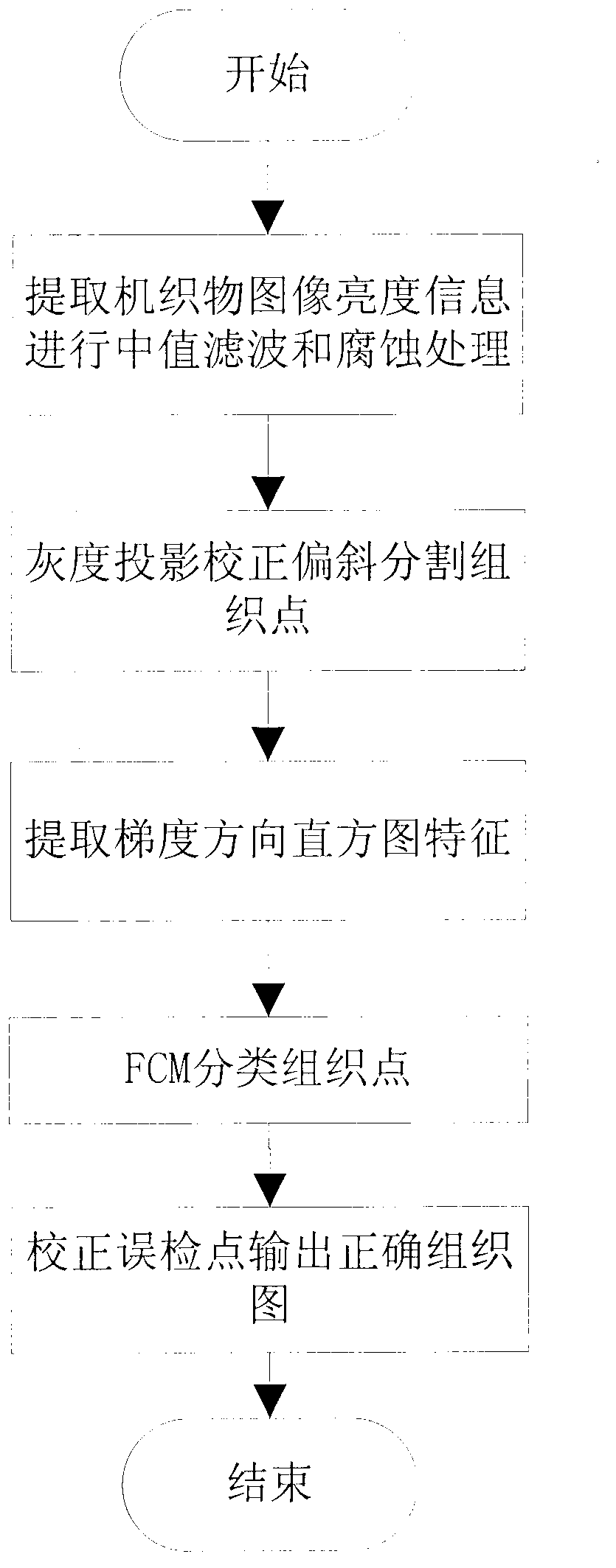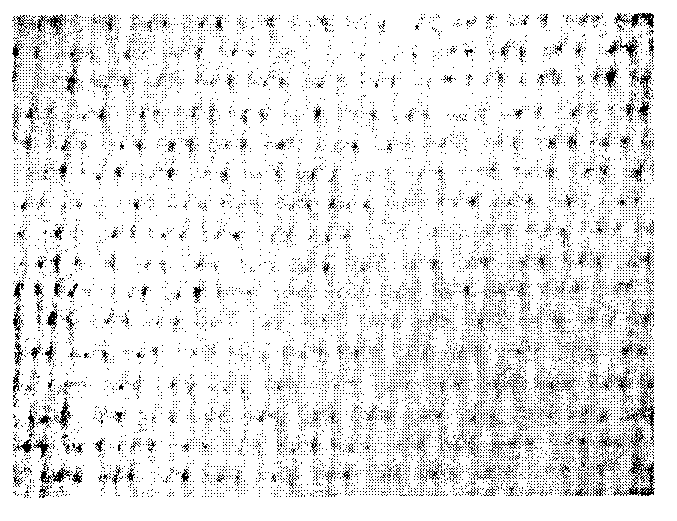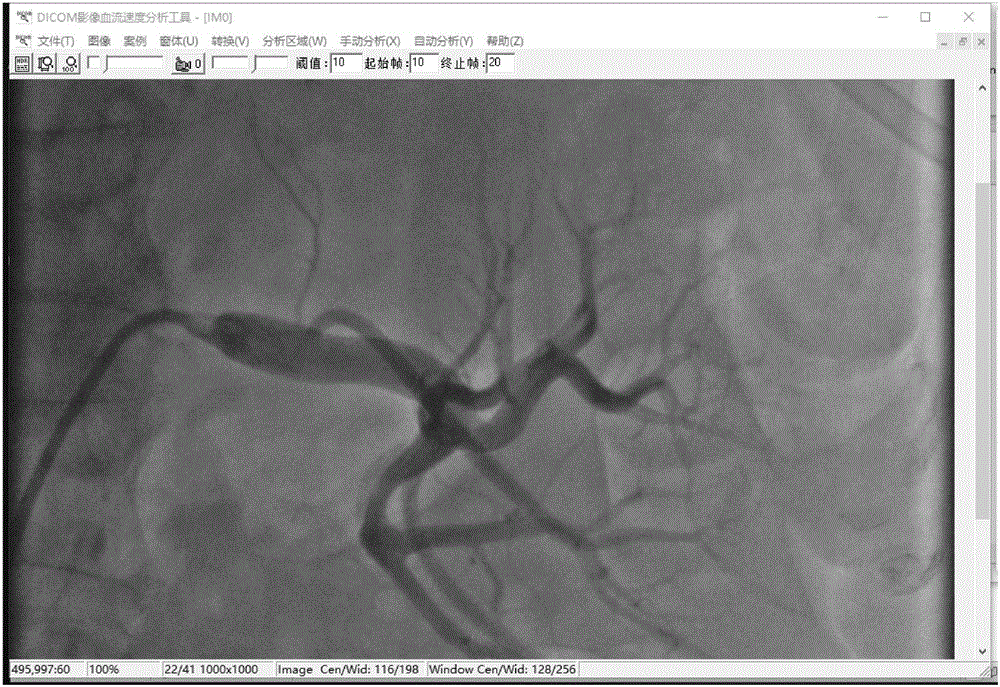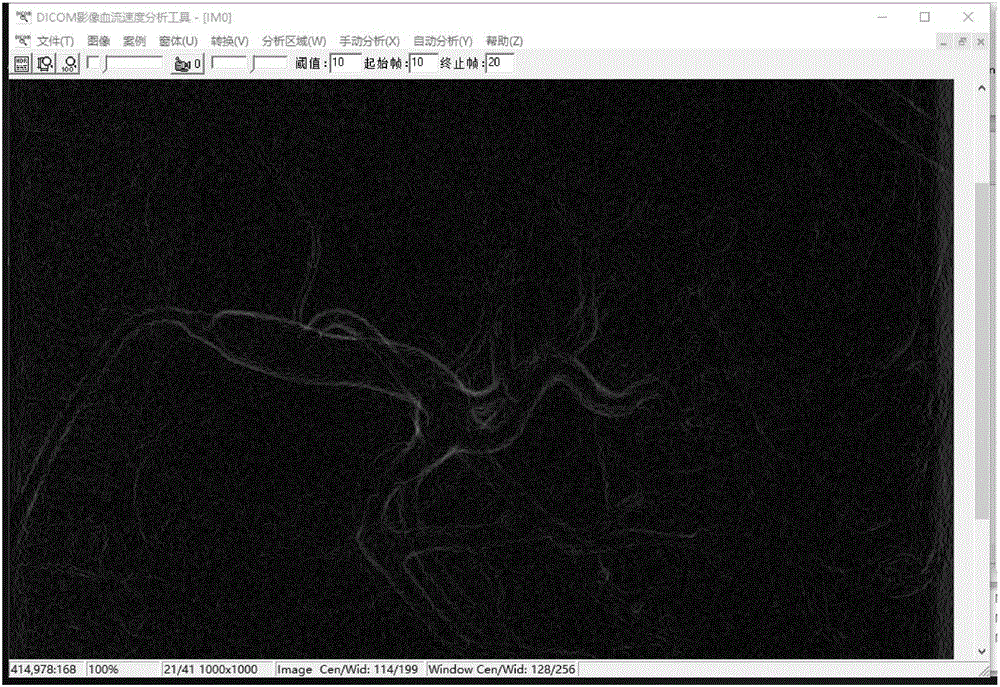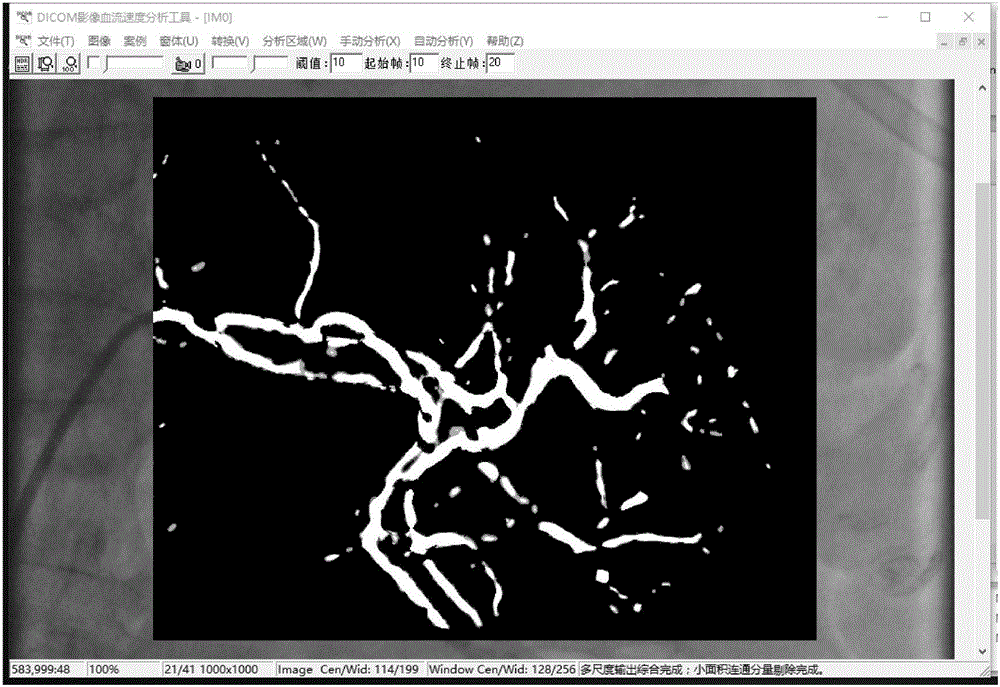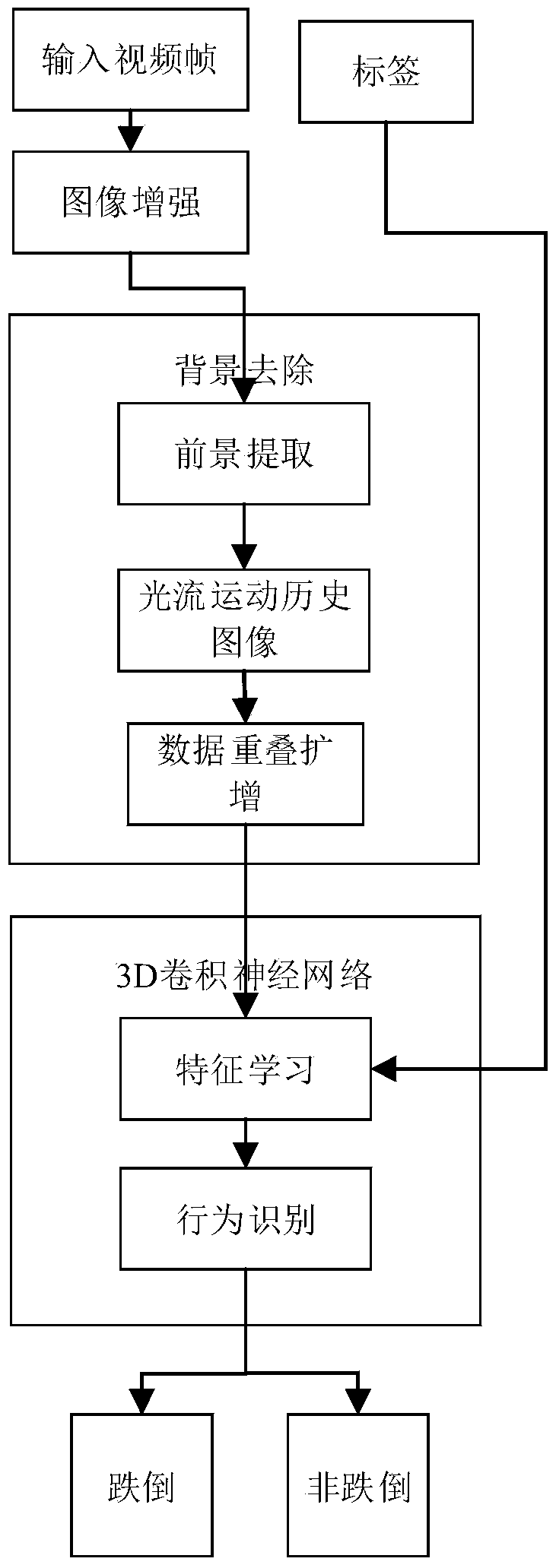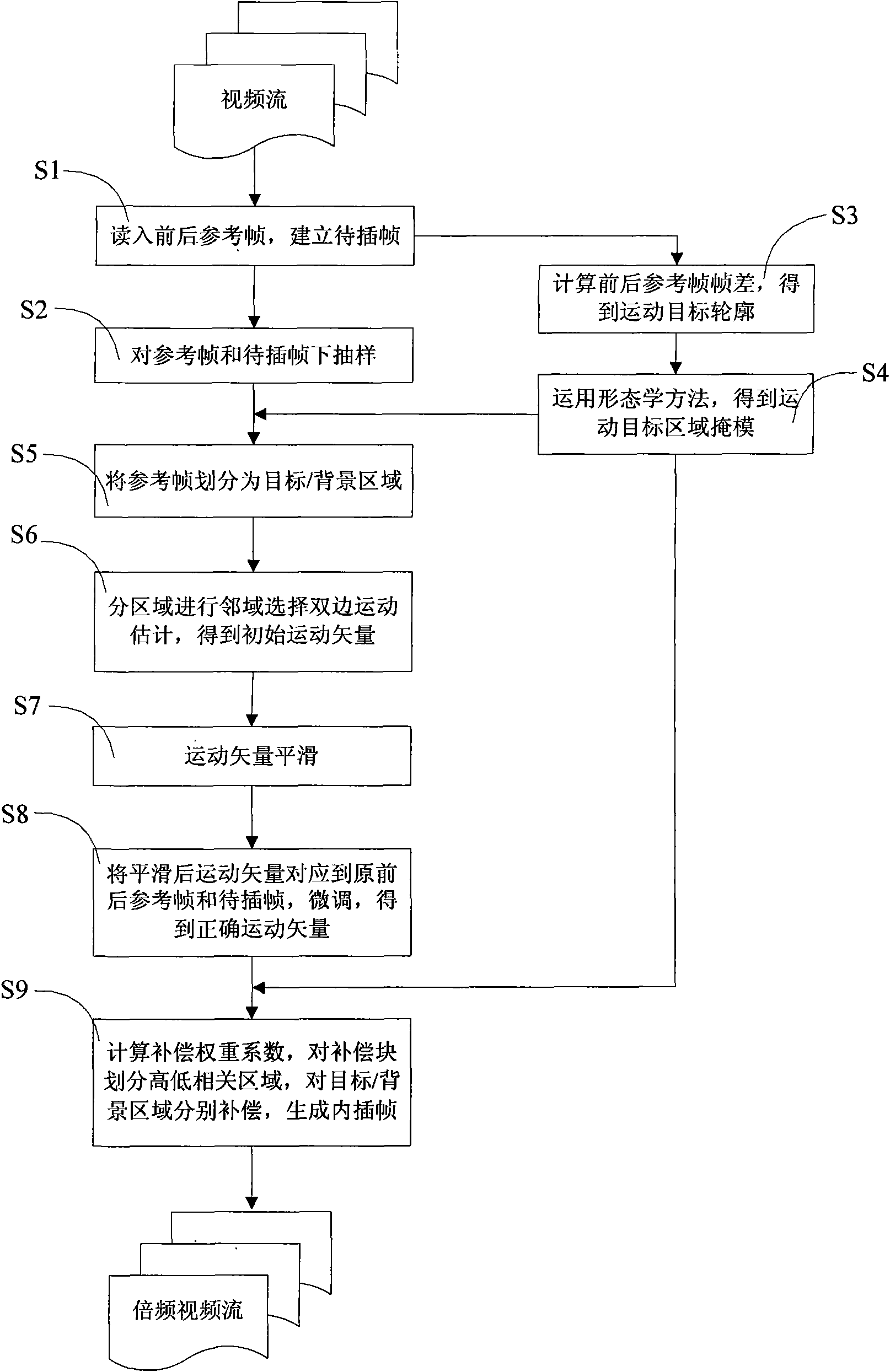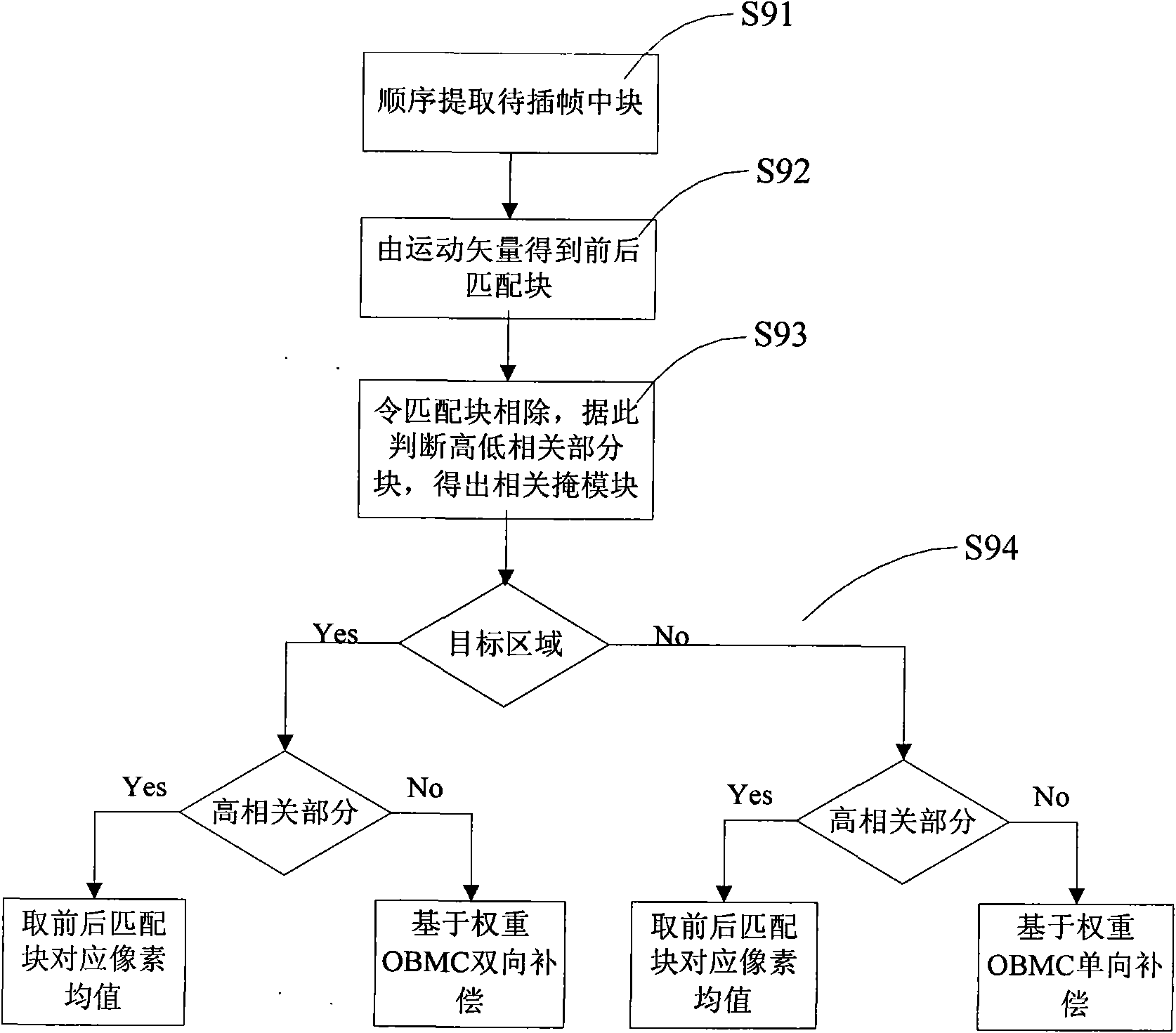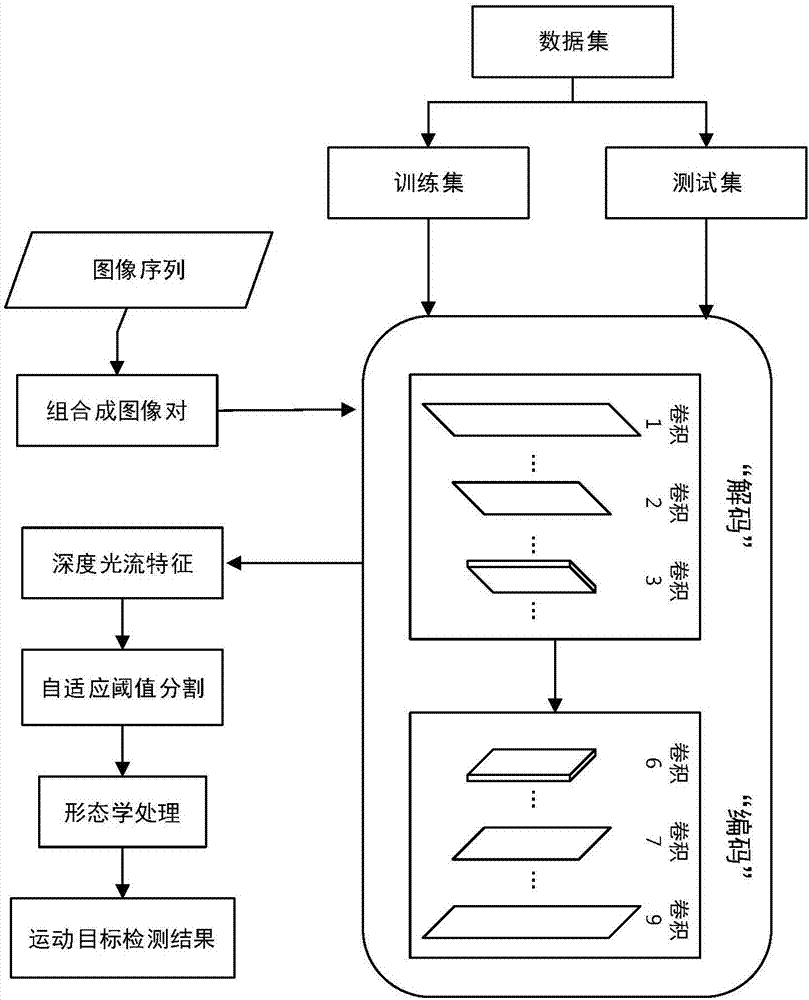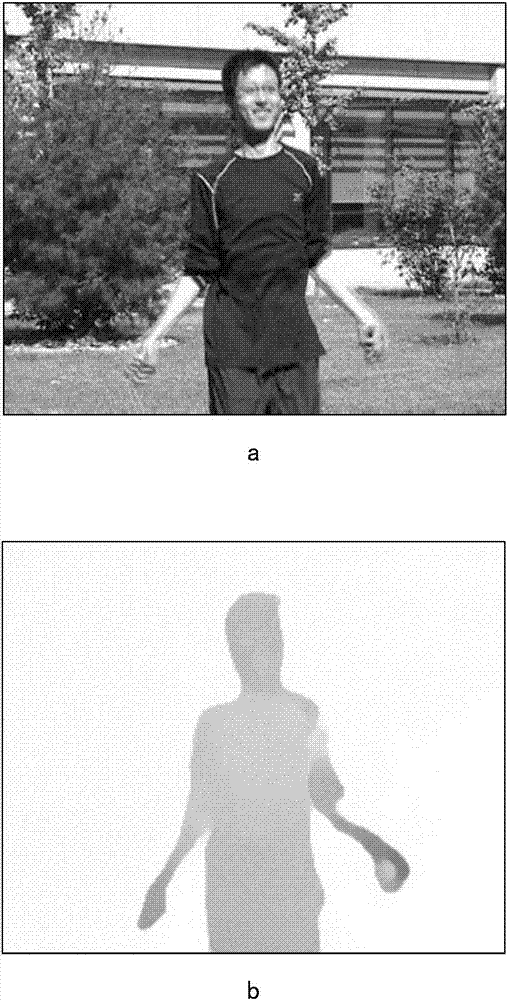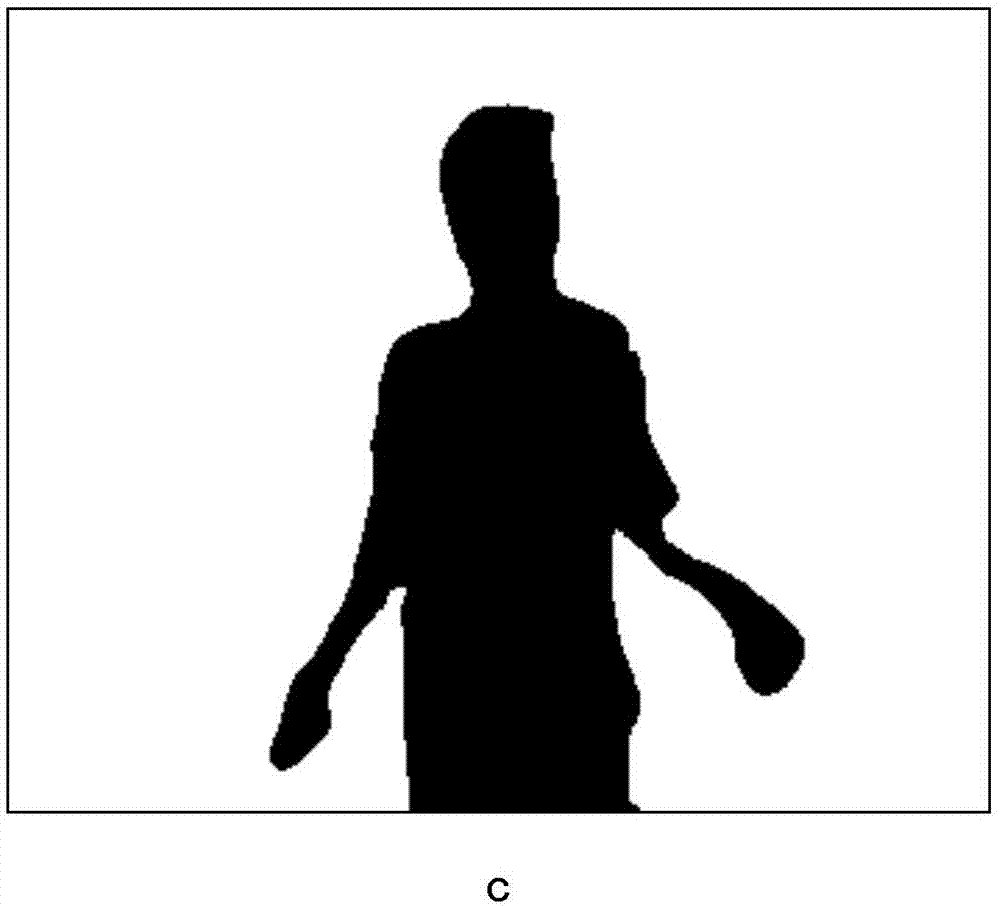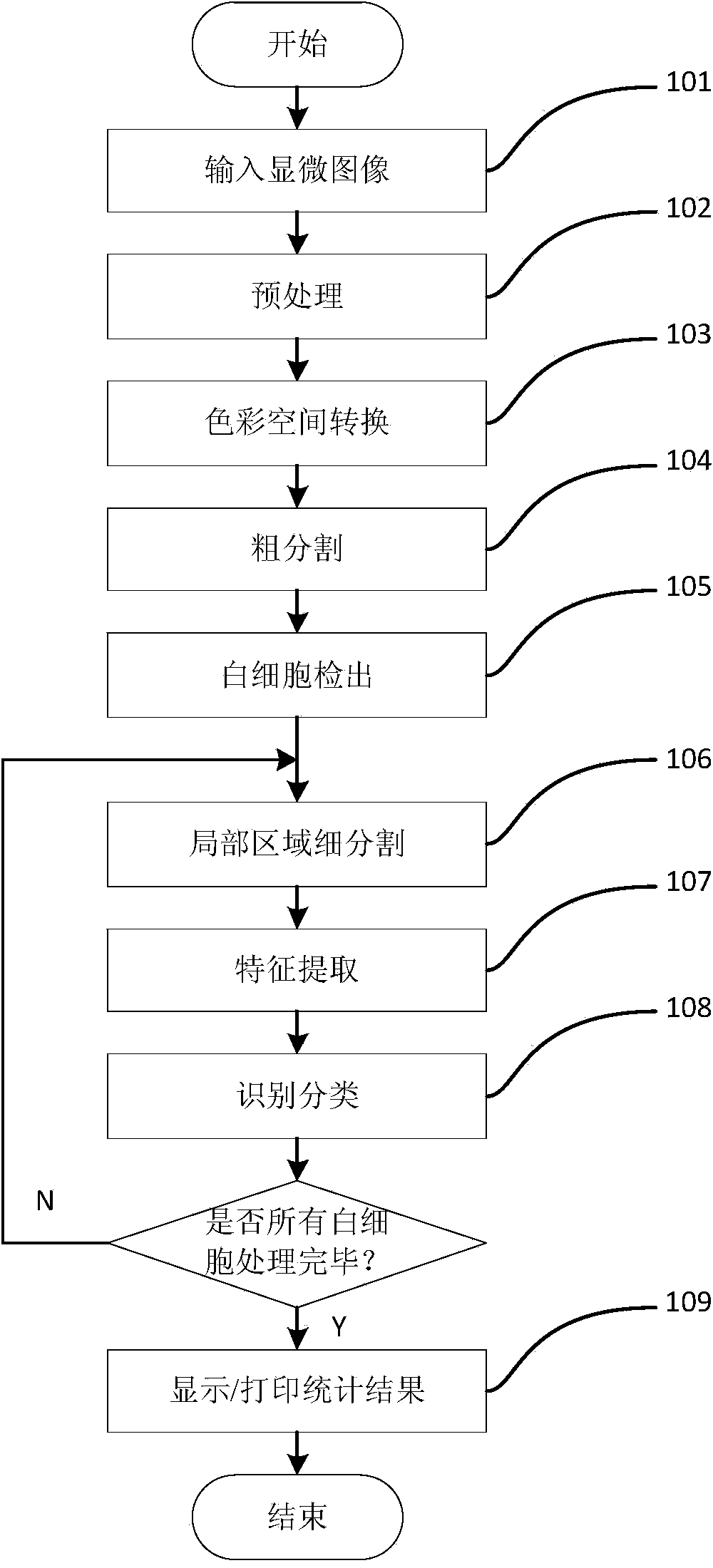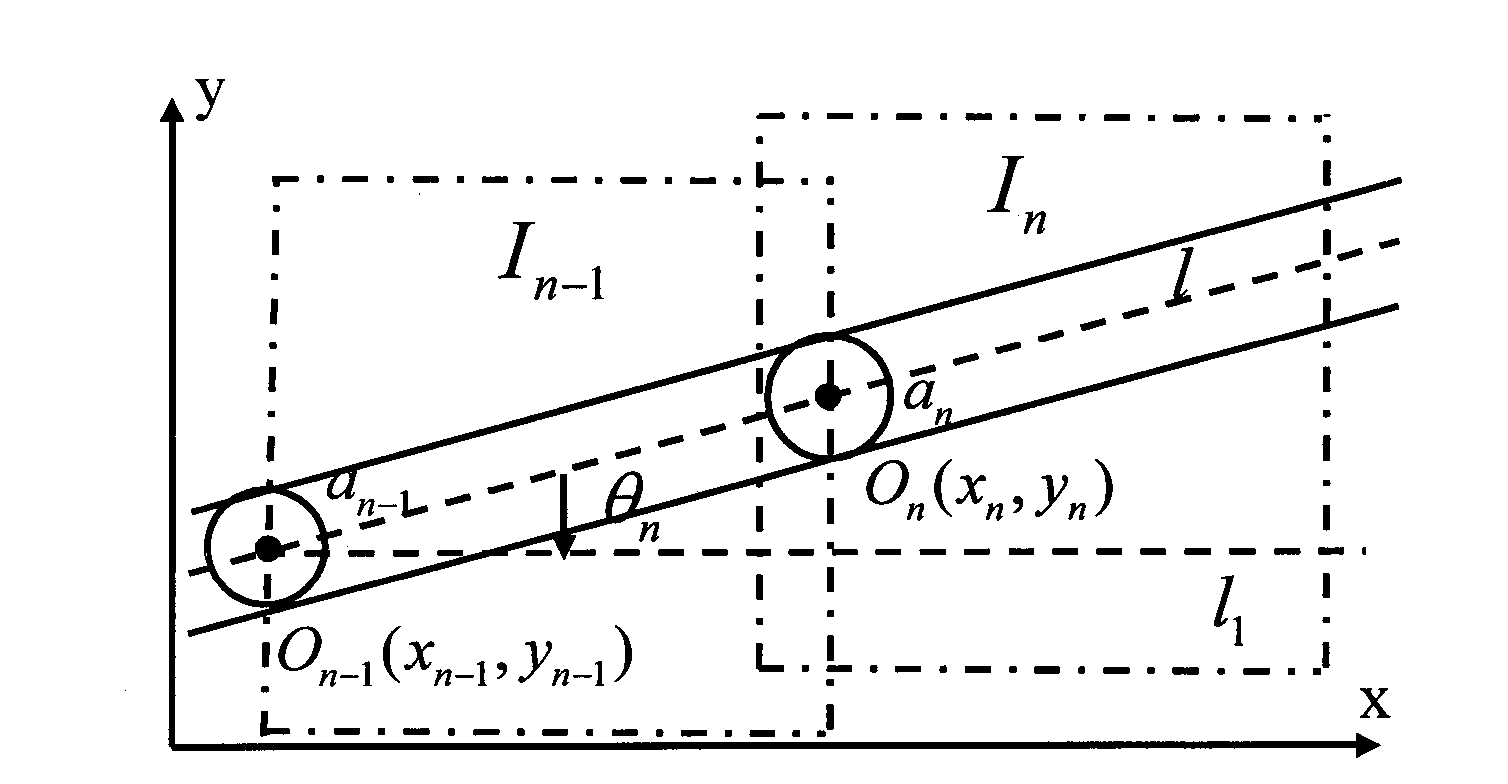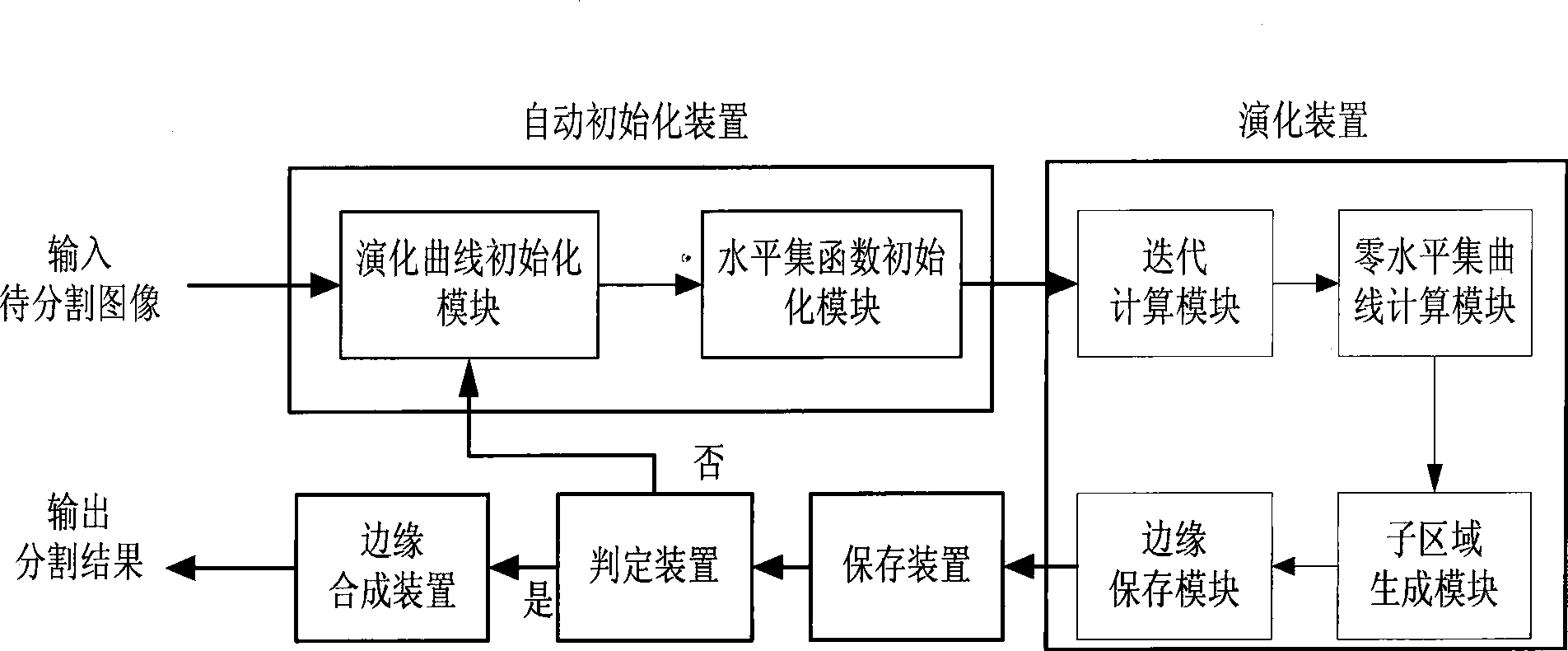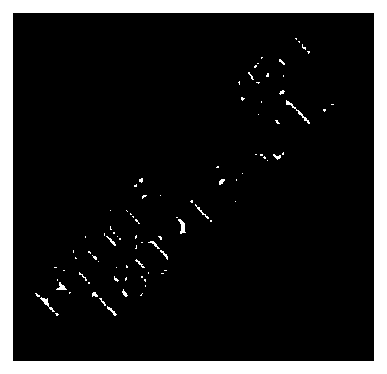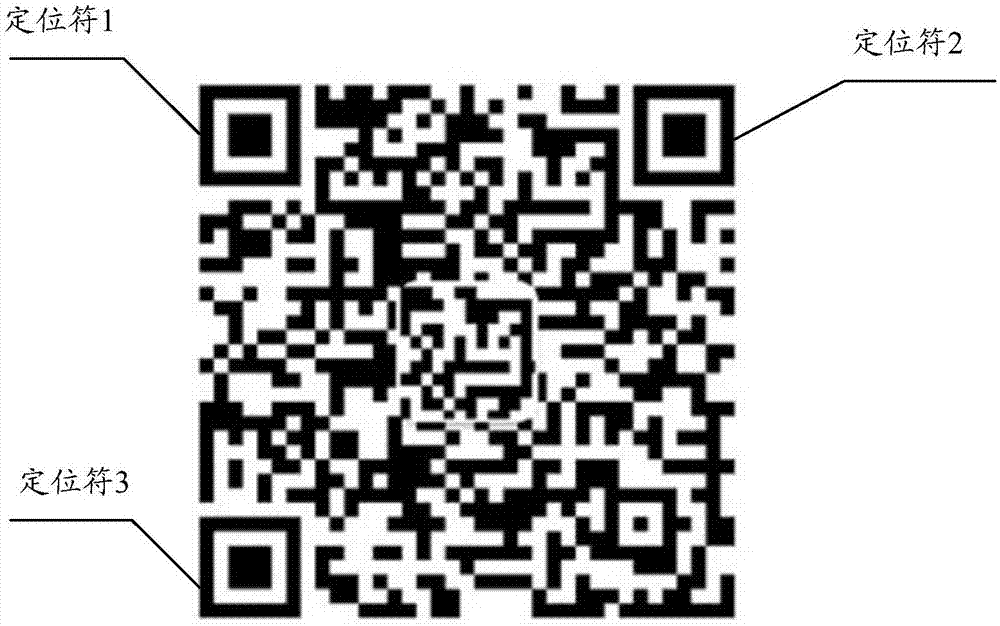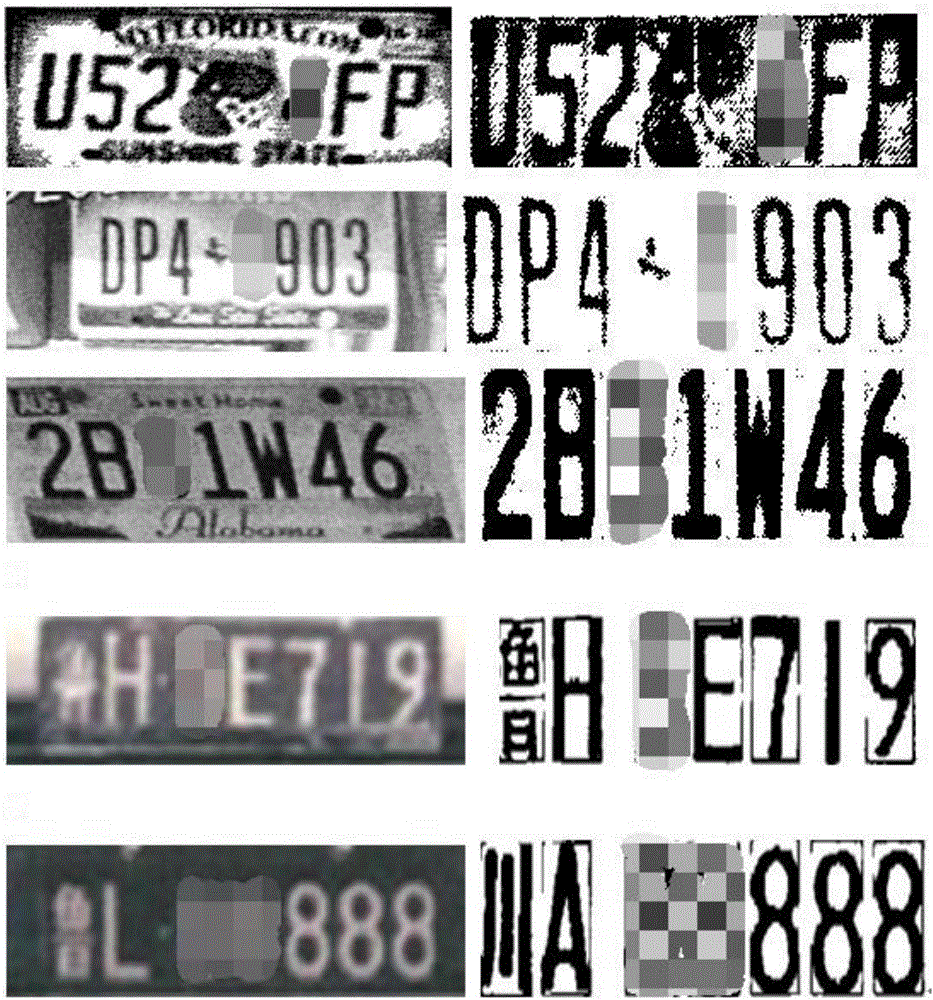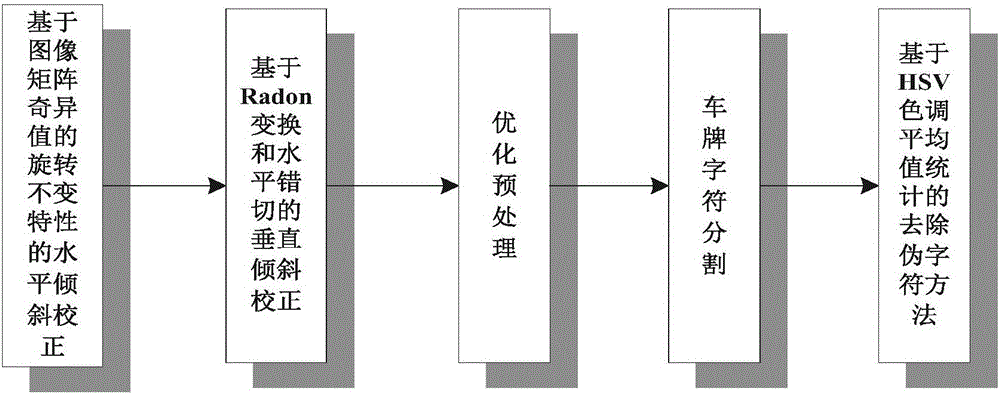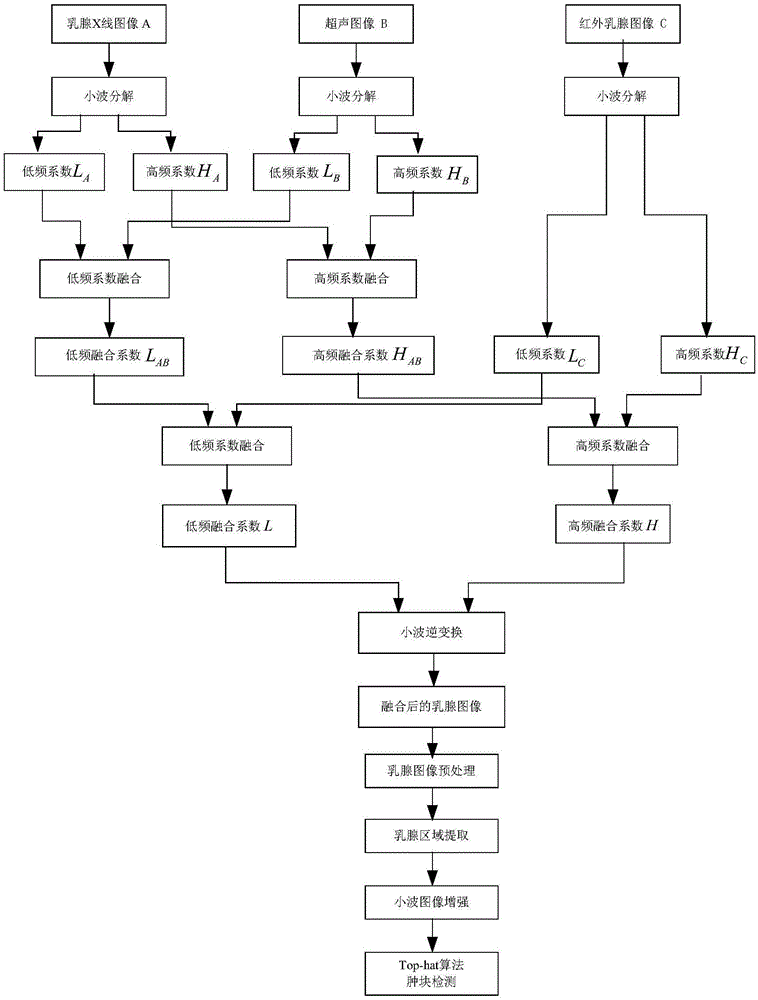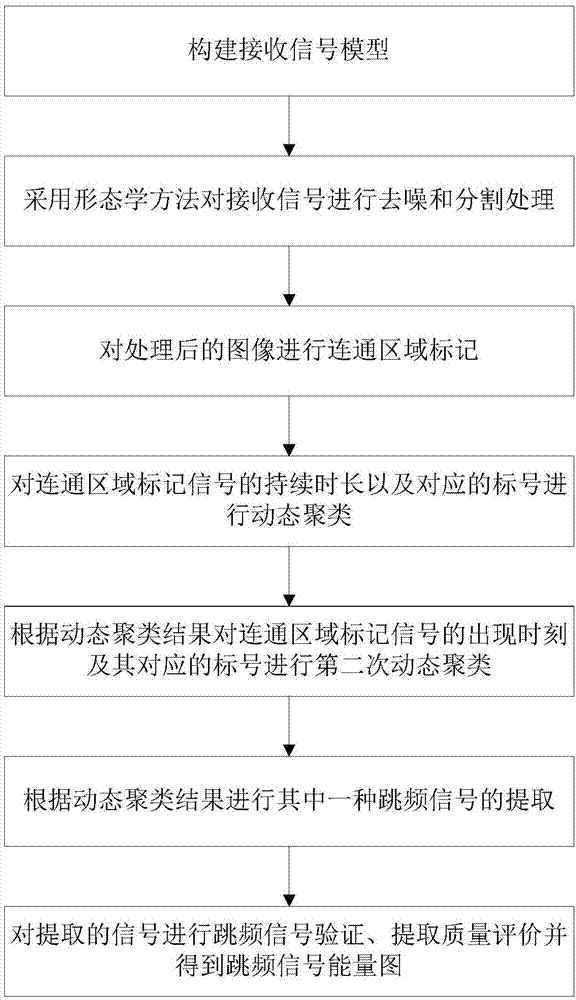Patents
Literature
Hiro is an intelligent assistant for R&D personnel, combined with Patent DNA, to facilitate innovative research.
212 results about "Morphology Method" patented technology
Efficacy Topic
Property
Owner
Technical Advancement
Application Domain
Technology Topic
Technology Field Word
Patent Country/Region
Patent Type
Patent Status
Application Year
Inventor
The technique used to administer the morphologic assessment.
Parallax optimization algorithm-based binocular stereo vision automatic measurement method
InactiveCN103868460AAccurate and automatic acquisitionComplete 3D point cloud informationImage analysisUsing optical meansBinocular stereoNon targeted
The invention discloses a parallax optimization algorithm-based binocular stereo vision automatic measurement method. The method comprises the steps of 1, obtaining a corrected binocular view; 2, matching by using a stereo matching algorithm and taking a left view as a base map to obtain a preliminary disparity map; 3, for the corrected left view, enabling a target object area to be a colorized master map and other non-target areas to be wholly black; 4, acquiring a complete disparity map of the target object area according to the target object area; 5, for the complete disparity map, obtaining a three-dimensional point cloud according to a projection model; 6, performing coordinate reprojection on the three-dimensional point cloud to compound a coordinate related pixel map; 7, using a morphology method to automatically measure the length and width of a target object. By adopting the method, a binocular measuring operation process is simplified, the influence of specular reflection, foreshortening, perspective distortion, low textures and repeated textures on a smooth surface is reduced, automatic and intelligent measuring is realized, the application range of binocular measuring is widened, and technical support is provided for subsequent robot binocular vision.
Owner:GUILIN UNIV OF ELECTRONIC TECH
High-speed weak target flight path detection method of image field
InactiveCN101718870AReduce the impactPrecise positioningRadio wave reradiation/reflectionMethod of imagesSkeletonization
The invention discloses a high-speed weak target flight path detection method of an image field, relating to the field of moving object tracking, and mainly solving the problem of extracting a moving object flight path and a target kinematic parameter from data with a low signal-to-noise ratio. The detection process is as follows: firstly, obtaining a time-Doppler image by mixing and accumulating target multiframe data; carrying out edge extracting on the basis of phase equalization model; carrying out skeletonization and binary image de-noising treatment on the edge detection result with a morphology method to realize edge center positioning as well as noise inhibition; and finally, using a least square method to detect the target flight path and estimate a target parameter. The invention can accurately estimate the advantages of a curve flight path parameter, and can be used for the data processing field for monitoring systems, such as radars and the like to realize high-speed weak target detection and tracking.
Owner:XIDIAN UNIV
High-speed rail catenary geometric parameter detection non-contact compensation and Kalman filtering correction method
InactiveCN103557788AGuaranteed real-timeImprove processing efficiencyUsing optical meansPull-offVideo image
Owner:SOUTHWEST JIAOTONG UNIV
Single-pointer meter reading method based on machine vision
InactiveCN108009535AEasy to findFind exactlyCharacter and pattern recognitionMachine visionSelf adaptive
The invention relates to a single-pointer meter reading method based on machine vision. The method comprises the steps of collecting a template map and modeling and performing feature detection on a template map dial area, a step of performing feature detection on a meter image to be the recognized, completing the dial area positioning in the meter image to be the recognized by using the feature matching technology and calibrating a dial area to be recognized as a template map state, a step of processing the calibrated dial area map, a step of obtaining a pointer area by using a pointer-basedfeature search method, a step of carrying out shadow removal on the pointer area, a step of obtaining a pointer single pixel boundary by using a morphology method, completing adaptive pointer boundarylinear detection, and obtaining a pointer straight line by an angular bisector, a step of completing pointer direction judgment by using a projection method, and completing meter reading by using anangular method. According to the method, the information needed by pointer-type meter recognition can be reduced, the method can be adapted to the conditions of pointer breakage and pointer and text stickiness in an image, the method is not interfered by a pointer shadow, and the method has high accuracy and stability.
Owner:WUHAN ZHONGYUAN HUADIAN SCI & TECH
Motion information and trajectory association-based video pedestrian detection and tracking method
ActiveCN105224912AQuick checkAccurate trackingCharacter and pattern recognitionFrame differenceSlide window
The present invention provides a motion information and trajectory association-based video pedestrian detection and tracking method. Pedestrian detection comprises: detecting motion by using a frame difference method; first detecting a motion area in a video in combination with a morphological method of digital image processing; then extracting a feature from the motion area in a manner of sliding window searching; and performing classification by using a previously trained pedestrian detection classifier, to finally obtain a classification result. The tracking method comprises: using the pedestrian detection result obtained in the previous step as input of this step; in the beginning, initializing a tracker for each detected pedestrian, wherein each tracker comprises history motion information and appearance information of an object; and when a current frame is being processed, extracting location information and appearance information for each input detection result, and establishing a correlation matrix based on this to associate with a tracking object of a previous frame, and finally obtaining a tracking trajectory of a pedestrian. The present invention has good real-time performance, and also has good robustness in a relatively complex situation.
Owner:HOPE CLEAN ENERGY (GRP) CO LTD
Method for detecting diseases of crop leaves
InactiveCN102759528AKeep abreast of health statusIncrease productionMaterial analysis by optical meansDiseaseImage segmentation
The invention discloses a method for detecting diseases of crop leaves. The method comprises the following steps: acquiring a leaf image of a crop to be detected, uploading the leaf image to an on-line detection platform with a disease image automatic identification function and a professional diagnosis system function, performing scab image partitioning and identification on the leaf of the crop to be detected, outputting a detection result, and giving a control suggestion, wherein the scab image partitioning is as followings: converting an original image from a red, green and blue (RGB) model space to a horizontal situation index (HSI) space, respectively extracting an H component image and an I component image in the HIS space, and performing dynamic threshold value partitioning on the H component image by using a maximum between-cluster variance method to preliminarily obtain a scab region image; superimposing the I component image on the partitioning result of the H component image to eliminate misjudgment caused by a background region on the scab partitioning, thus obtaining a binary image only comprising the scab region; and performing subsequent treatment on the partitioning result by using a morphological method, and finally obtaining a complete scab image of the leaf of the crop to be detected.
Owner:SHAANXI UNIV OF SCI & TECH
Vehicle intelligent back vision method
InactiveCN101236603AEnsure driving safetyImprove the level of life supportImage enhancementImage analysisStructuring elementExercise state
The invention provides a vehicle intelligent rear viewing method in the vehicle intelligent technical field, comprising the following: step one is to acquire a scenery image from the posterior lateral of the vehicle by two needle cameras arranged on a left rear view mirror and a right rear view mirror of the vehicle respectively and a needle camera arranged on a rear deflector door of a vehicle body; step two is to perform a pretreatment to the acquired scenery image; step three is to perform an edge detection for the pretreated image based on a method of mathematical morphology of multi-structural elements; step four is to form a sampling round region and perform a polar-log grid sampling to an edge image occurring in the sampling round region; step five is to perform an image data conversion to the edge image received from the polar-log grid sampling; step six is to perform a recognition of a motion state to the converted image data; and step seven is to perform a decision operation and output an execution command according to the recognition result of the motion state. The vehicle intelligent rear viewing method improves the safety technical level of the vehicle and reduces the occurrence probability of road traffic accidents.
Owner:SHANGHAI JIAO TONG UNIV
Driver fixation point clustering method based on density clustering method and morphology clustering method
InactiveCN103903276AReduce outliersOvercome clustering deficienciesImage analysisCharacter and pattern recognitionDriver/operatorDensity based
The invention provides a driver fixation point clustering method based on a density clustering method and a morphology clustering method, and belongs to the field of typical density clustering methods and mathematic morphology clustering methods. The driver fixation point clustering method includes the steps of putting forward a density method and mathematic morphology method combined self-adaption DBSCAN-MMC method, applying the method to driver fixation point clustering, setting the value of the Eps through fixation point structure parameters, obtaining an initial point set of MMC clusters through the DBSCAN, determining the number of the clusters, reducing outliers produced through DBSCAN clusters through the self-adaption MMC clusters, and completing clustering oriented to driver fixation areas. According to the method, the advantages of irregular shape clustering of the DBSCAN and the MMC are fully used, the defects of the two clustering methods are overcome, the clustering effect is superior to the clustering effect of the conventional DBSCAN clustering method and the conventional MMC clustering method when the driver fixation areas are divided, and the driver fixation clustering quality is improved.
Owner:JILIN UNIV
Human ear detection method under complex static color background
InactiveCN101551853AAvoid bondageReduce training timeCharacter and pattern recognitionSkin colorHuman ear
The invention relates to a human ear detection method with phase optimization under complex static color background; the method has the following steps of: (1) selecting YCbCr space as a skin color division space, using a Gaussian model as a skin color distribution model, conducting skin color likelihood score conversion and dynamic threshold division to the conversed image; (2) using a morphological method to optimize each divided region and conducting skin color region screening so as to exclude the skin color region not covering human side face and reduce interference; (3) using a wavelet modulus maximum method to detect the image edges under different scales and overlapping edge binary images under different scales, thereby not only accurately detecting the internal and external edges of human ear, but also suppressing noise interference; and (4) realizing human ear detection by conducting expansion, filling, refinement and reconstruction to the edge binary images. The test result shows that the method obtains good effect and is expected to provide useful reference for the development of a human ear automatic identification system.
Owner:CHONGQING UNIV
High-voltage line foreign matter invasion target detection method
InactiveCN104463904AImprove detection accuracyImage enhancementImage analysisVideo monitoringForeign matter
A high-voltage line foreign matter invasion target detection method includes the steps that an adjacent-frame image is extracted from a video monitoring terminal or a video, the extracted adjacent-frame image is preprocessed, the movement characteristic of the adjacent-frame image is extracted, foreign matter or an invasion target is detected, the foreign matter invasion target is marked through a morphological method, the foreign matter or the invasion target is tracked, whether a power transmission line is affected or not is judged, and if yes, an alarm is given. Through the method, the foreign matter invasion target is fast and accurately detected, a high-voltage line is monitored, and an actual application requirement can be met.
Owner:STATE GRID CORP OF CHINA +1
Algorithm for fusing multi-focusing image based on salient region extraction
ActiveCN104616274ALarge local gradientDispersion of gray level distributionImage enhancementSource imageFrequency map
The invention relates to an algorithm for fusing a multi-focusing image based on salient region extraction. The algorithm comprises the steps of 1, performing GBVS algorithm to obtain salient images of two source images; 2, performing binaryzation for the salient images, and respectively calculating the space frequency so as to obtain space frequency maps; 3, detecting the weak side edges of the space frequency maps by the watershed algorithm to obtain closed areas, classifying, comparing the space frequency of different regions to find out the false focusing areas, filtering the false focusing areas, and processing the rest regions by the morphological method to obtain a focusing area; 4, directly fusing the source image focusing regions, performing Shearlet conversion for the out-of-focus regions, and decomposing to obtain high frequency and low frequency sub-band coefficients, and respectively performing conversion and fusion based on PCNN and laplacian pyramid; 5, reconstructing the fusion coefficients to obtain a fusion image. With the adoption of the algorithm, the gray levels are dispersedly distributed, the image textures are rich, and the details are salient.
Owner:INNER MONGOLIA UNIV OF SCI & TECH
Quick landslide extraction method based on fully polarimetric SAR (synthetic aperture radar) images
InactiveCN104951789AQuick extractionAccurate extractionCharacter and pattern recognitionDecompositionSynthetic aperture radar
The invention discloses a quick landslide extraction method based on fully polarimetric SAR (synthetic aperture radar) images. An airborne or satellite-borne satellite acquires two to-be-processed original fully polarimetric images with the same orbit and mode before and after occurrence of a landslide disaster, then reference images are acquired through preprocessing of the images, polarization feature extraction is performed on the reference images with a Freeman decomposition and Cloude decomposition combined method, initial classification images are acquired and then clustered, similar feature areas are merged, final classification images are acquired, change detection processing is performed on the final classification images with a change detection algorithm according to area features before and after landslide occurrence, a suspected landslide area chart is generated, finally, the suspected landslide area chart is processed with a morphological method, noise or small areas are removed, and a landslide distribution map is output finally, so that large-area landslide information can be extracted from the fully polarimetric SAR images quickly and accurately.
Owner:UNIV OF ELECTRONICS SCI & TECH OF CHINA
Recognition method for woven fabric structure
InactiveCN103106645ASimple methodEasy to implementImage enhancementImage analysisError checkingStatistical classification
The invention relates to an automatic recognition method for a woven fabric structure based on gradient direction characteristics and Fuzzy C-Means Algorithm (FCM). The automatic recognition method comprises the following steps of: firstly preprocessing a woven fabric brightness image by adopting an image morphology method, then correcting deflection existing in interweaving of warp yarns and weft yarns by utilizing gray projection, simultaneously segmenting a fabric image into a plurality of weave points, extracting gradient direction histogram characteristics on each weave point, classifying the weave points by using an improved FCM, and finally carrying out statistics on classifying results according to the periodicity of the fabric structure and correcting error checking points, thus outputting a correct weave chart. The automatic recognition method can overcome the influence brought by uneven illumination, and difference in thickness and color of yarns by utilizing gradient direction information of the weave points and combining with the FCM method, can achieve recognition of basic weaves (a plain weave, a twill weave and a satin weave) of the woven fabric, and also has a good recognition effect on derivative weaves (a plain derivative weave, a twill derivative weave and a satin derivative weave) in small decorative pattern derivative weaves.
Owner:TIANJIN POLYTECHNIC UNIV
Method and system for correcting brightness of text image
InactiveCN102411775AEasy to describe mathematicallyGood input dataImage enhancementImaging analysisBrightness perception
The invention discloses a method and system for correcting the brightness of a text image. The method comprises the following steps of: performing gray scale morphological closed operation on an original text image to acquire a background gray scale image of the original text image; performing Gaussian smooth processing, sampling background gray scale data obtained after the Gaussian smooth processing, and performing curved surface fitting to acquire a background gray scale curved surface; and traversing pixel points in the original text image and pixel points of a corrected image, calculating brightness correction coefficients of the pixel points according to a background gray scale fit image and correcting the brightness of the original text image. As the background brightness is estimated by adopting a morphological method and the Gaussian smooth processing is performed so that the curved surface fit can be carried out to acquire a mathematical description for the background brightness; aiming at the brightness correction coefficient corresponding to each pixel point in the image, correction of the text image with the non-uniform background brightness can be finished; therefore, good input data can be supplied to the subsequent image analysis and understanding processes.
Owner:TCL CORPORATION
DICOM image blood flow analysis system
ActiveCN105825516AIntuitive image informationRich image informationImage enhancementDiagnostic signal processingDICOMCluster algorithm
The present invention relates to a DICOM image blood flow analysis system. The DICOM image blood flow analysis system comprises: a DICOM file reading and playing module configured to open one or more than one DICOM files to display continuous multi-frame images; a morphology transformation module configured to perform preprocessing of the DICOM files; a blood vessel area extraction module configured to extract the main body of the blood vessel radiography based on a DBSCAN cluster algorithm and extract the fine marginal portion of the blood vessel radiography through multi-scale Gabor filtering; a blood vessel central axis extraction module configured to fuse the context information to perform blood vessel enhancement based on the extracted blood vessel area, extract a partial extreme point to act as a blood vessel central axis and remove partial spurious central axis and find out a communication component so as to complete the central axis extraction through a central axis tracking morphological method; and a calculation module configured to analyze each frame of radiography liquid expansion area and calculate the average diffusion speed and instantaneous diffusion speed of the radiography liquid. The DICOM image blood flow analysis system is able to analyze the contrast agent expansion speed in a blood vessel in real time.
Owner:SHANGHAI HUIDA MEDICAL INSTR
Falling behavior recognition method based on three-dimensional convolutional neural network
ActiveCN110555368AMulti-parameterMore training timeCharacter and pattern recognitionNeural architecturesHuman bodyData set
The invention discloses a falling behavior recognition method based on a three-dimensional convolutional neural network, and the method comprises the steps: firstly obtaining and preprocessing a falling data set video, and obtaining a falling behavior video sample; removing the background of the video by adopting a target detection method combining a three-frame difference method based on Gaussianmixture and an adaptive threshold, and obtaining a complete human body target region by adopting a small-area removal and morphological method; extracting optical flow motion history image features of a human body target area, and adding a sample set to the feature images in a data overlapping amplification mode; randomly dividing the overlapped and amplified falling behavior sample set into a training sample set and a verification sample set according to a ratio of 7: 3, inputting the training sample set and the verification sample set into a 3D convolutional neural network model classifier,carrying out continuous iterative training, and continuously verifying the model classifier by using the verification sample set; and inputting the test sample set into the trained model classifier to complete tumble behavior identification. According to the invention, the problems of low classification recognition rate and low precision caused by background interference of the existing fall detection method are solved.
Owner:XIAN UNIV OF TECH
Frame frequency lifting method for combining target partition and irregular block compensation
InactiveCN101621693AQuality improvementImprove display qualityTelevision systemsDigital video signal modificationFrame differenceMotion vector
The invention discloses a frame frequency lifting method for combining target partition and irregular block compensation, which is characterized by comprising the following steps that: firstly, establishing a blank frame to be inserted; secondly, sampling a reference frame and the blank frame to be inserted; thirdly, calculating the frame difference between the reference frame and the blank frame to obtain a moving target outline and a moving target area mask by applying the morphological method; fourthly, partitioning the two reference frames into a target area and a background area; fifthly, moving and estimating subarea processing to obtain an initial motion vector; sixthly, smoothening the obtained initial motion vector; seventhly, trimming the initial motion vector after being smoothened to obtain a more accurate motion vector; eighthly, calculating the compensation weight coefficient Mu; ninthly, partitioning the block into a high relevant area and a low relevant area; tenthly, compensating subarea processing; and eleventhly, generating an interpolated frame. The method can be widely applied to the technical fields of video coding and encoding and video processing.
Owner:CHONGQING UNIV +1
Moving target detection method based on deep optical flow and morphological method
ActiveCN107967695AAccurate motion detection resultsRobust Optical Flow ResultsImage enhancementImage analysisAdaptive learningModel parameters
The invention discloses a moving target detection method based on a deep optical flow and a morphological method, which includes the following steps: (1) collecting video data, marking sample videos,randomly dividing the sample videos into a training set and a testing set, carrying out mean calculation on the processed training set and the processed testing set to form a training set mean file and a testing set mean file, and completing the preprocessing of the training set and the testing set; (2) constructing a fully convolutional neural network architecture composed of a coding part and adecoding part, and carrying out training by using the training set and the testing set through an adaptive learning rate adjustment algorithm to get trained model parameters; (3) inputting image dataneeding detection to a trained fully convolutional neural network to get a corresponding deep optical flow graph; (4) processing the deep optical flow graph through an Otsu threshold adaptive segmentation method; and (5) morphologically processing the data after threshold segmentation, removing outliers and slots, and finally obtaining a detected moving target area.
Owner:BEIHANG UNIV
A target object size measurement method of sparse point cloud
The invention relates to a method for measuring the size of a target object of sparse point cloud. The method comprises the following technical steps of: converting a point cloud coordinate system into an image pixel coordinate system; Projecting the point cloud data on an XY plane to obtain a two-dimensional point cloud; Carrying out edge detection on the matched image by using a Canny operator;De-noising and refining the edge contour line by adopting an image morphology method; Carrying out traversal search on the point cloud image, and carrying out pixel point coordinate matching on the point cloud image and the binary contour image; And extracting the point cloud coordinates which are matched and matched to form a new point cloud, and carrying out linear fitting and size measurement on the new point cloud. According to the invention, through overlapping the point cloud image and the contour image after stereo matching, the point cloud on the contour line is extracted, the linear fitting algorithm is used to carry out linear fitting on the extracted new point cloud coordinate, and the size measurement is further carried out.
Owner:XIDIAN UNIV +1
Method for leukocyte automatic identification based on relevant vector machine
InactiveCN103679184ARapid Quantitative Analysis ResearchAccurate Quantitative Analysis ResearchCharacter and pattern recognitionMicroscopic imageWhite blood cell
The invention provides a method for leukocyte automatic identification based on a relevant vector machine. According to the method, hue information of blood microscopic image characteristics is utilized and coarse segmentation of a hue image is accomplished according to a gray level image segmentation method based on the relevant vector machine; all leukocytes are detected with the assistance of an FCNN; a threshold value is determined through the clustering methodology and fine segmentation is conducted on a partial image containing one single leukocyte with the combination of the threshold value segmentation method and a binary morphology method; on the basis of the partial images obtained in the last step, the representative leukocyte characteristics are extracted, wherein the leukocyte characteristics comprise 47 characteristics in three types of forms, colors and textures; the leukocytes are identified and classified through the supported vector machine. The method has the advantages that the identification effect is ideal, stability is high and robustness is good. Valuable information is provided for diagnosis conducted by a doctor and quantitative analytical investigation is rapidly and accurately conducted on the cells.
Owner:HOHAI UNIV
Method of fast and effective cutting apart vivi iris
A quick and effective segment method for a human iris image in an image process technology includes: 1, determining a binary threshold value based on a gray projection method then to carry out binary quantization to the original images, 2, eliminating noises of the binary images with the morphologic method, carrying out edge test to the image after eliminating noises by Sobel operator, 4, determining the parameter of the pupil to segment the pupil with the theory of string crossing and determining a circle by three points, 5, determining sphere around the iris based on the parameter of the pupil, 6, reducing area of the iris pro rata and carrying out the edge test in the vertical direction with an improved Canny operator, 7, further eliminating noise information of the pupil region and part of the eyelashes and eyelids, 8, carrying out location of a circle to the reduced edge image by the Hough transformation, 9, calculating the parameter of the original iris outer circle from the parameter of the reduced circle.
Owner:SHANGHAI JIAO TONG UNIV
Method for predicting traffic flow extracted by improved C-V model-based remote sensing image road network
InactiveCN101980317AHigh speedImprove efficiencyRoad vehicles traffic controlCharacter and pattern recognitionPredictive methodsTechnological convergence
The invention discloses a method for predicting traffic flow extracted by an improved C-V model-based remote sensing image road network, which comprises the following steps of: (1) preprocessing an original remote sensing image; (2) selecting a seed point and segmenting a first road network sub-image; (3) extracting a road network area by an improved C-V model-based level set method; (4) extracting a road network central line by a morphological thinning method; (5) segmenting a next road network sub-image by using a sub-image position decision rule and automatically acquiring a road network initial curve in the road network sub-images by a threshold segmentation and morphological method; (6) vectorizing a road network; and (7) predicting the traffic flow. By integrating technology such as remote sensing, geographic information system (GIS), image identification, traffic planning and the like, an urban road network can be more accurately, efficiently and cheaply updated in real time, the traffic flow prediction cost is lower, the traffic flow prediction accuracy is higher and the traffic flow prediction period is shorter, so that decision makers can be effectively assisted in making traffic planning decisions.
Owner:ZHEJIANG UNIV
Image splitting method based on level set relay
InactiveCN101504767AIncrease the level of automationAchieve segmentationImage analysisImage segmentationImage edge
The invention discloses a sequential level set-based method for automatically segmenting images, which comprises the steps: (1) inputting an image I to be segmented and automatically initializing a level set function in an image domain by using a morphological method; (2) evolving the level set function by using an iterative approach in a corresponding subdomain to obtain the level set function and a detected image border, and using the inside domain of the edge as a next subdomain; (3) converting an image edge detected in the subdomain into a binary image and storing the binary image; (4) judging whether the area of the next subdomain is zero, and executing a step (5) if the area of the next subdomain is zero, or returning to the step (1) if the area of the next subdomain is not zero; and (5) performing a 'combination' operation of the stored binary image, combining the image edges of all subdomains, and completing the image segmentation. The method has the advantages of detecting more image edges and automatically completing image segmentation, and can be used for segmenting natural images and medical images.
Owner:XIDIAN UNIV
Part code spraying detection method based on a convolutional neural network
ActiveCN109871938AEfficient extractionOvercome limitationsImage analysisCharacter and pattern recognitionImage extractionAlgorithm
The invention discloses a part code spraying detection method based on a convolutional neural network. The part code spraying detection method comprises the following steps: S1, collecting an image; S2, extracting a binary image of the code spraying area; S3, segmenting a code spraying area; S4, training the convolutional neural network; S5: code spraying detection. According to the method, a morphological method is used for extracting the code spraying area, inclination correction of the code spraying area is completed through affine transformation, the code spraying area can be effectively extracted, orthodontics can be completed, noise around the code spraying area and interference caused by code spraying inclination are eliminated, and good robustness is achieved; The projection algorithm is improved, single character segmentation is completed according to the information of the target image, priori information such as the number of characters and the width of characters is not needed, and the limitation that priori knowledge such as the number of characters needs to be given in advance in a traditional algorithm is effectively solved.
Owner:CHONGQING UNIV
Cascade quick image defect segmentation method
The invention relates to a cascade quick image defect segmentation method. The method includes: preprocessing an image to acquire global threshold information, and performing rough image segmentation based on a global adaptive threshold; acquiring fine image segmentation through priori knowledge and a level set method of local image information; eliminating evident error candidate defects and error alarms by means of size and shape analysis, and performing target separation on the basis of a parameterized mathematical morphology method. the problems such that non-uniformity of local and global thresholds leads to inaccurate image segmentation are solved by means of a stratified strategy; features of defects, such as shape and size, are introduced to a level set energy function; the priori knowledge of the defect shape is fully utilized, the problem of initial dependence is solved, and the method is well applicable to image defect segmentation having shape features; by introducing the cascade image processing architecture and discarding most non-defective images from the most front, unbalance of data distribution is greatly relieved, and defect segmentation speed and precision is greatly improved.
Owner:UNIV OF SHANGHAI FOR SCI & TECH
Method and device for locating fast-response QR code area
The invention relates to the field of image processing and particularly relates to a method and a device for locating QR codes. The method and the device solve the problem in the prior art that the conventional morphological method can not accurately locate the positions of QR codes in an image. According to the embodiment of the invention, according to the pixel value of each pixel point in a target image, filtering the pixel points of the target image. For pixel points which meet the filtering operation condition, the pixel points are clustered and a plurality of clustering areas are determined. According to the rectangular degree and the rotation angle of each clustering area, a clustering area corresponding to each QR code locator is selected based on the relative position information of the locator in a QR code. According to the selected clustering area corresponding to the QR code locator, the QR code area in the target image is located. According to shape features of the locator, the area corresponding to the QR code locator is selected according to the relative position information of the locator in the QR code. After that, the area of the QR code locator is selected. Therefore, in an environment of low contrast and high noise, the QR code can be located more accurately.
Owner:ゼジャンハーレイテクノロジーカンパニーリミテッド
Greenhouse vegetable disease surveillance video key frame extracting method and extracting system
The invention discloses a greenhouse vegetable disease surveillance video key frame extracting method and extracting system. According to the extracting method and the extracting system, the visual significance is combined with an online clustering algorithm. Firstly, an X2 histogram method is utilized to measure interframe difference and remove the effects of video frame images with the similar characteristics on the algorithm calculation amount; then the video frame images are transferred to an HSV color space, a visual significance diagram is calculated through characteristics of greenhouse vegetable surveillance video, an H channel and an S channel to extract the significance areas in the video frame images, and scab information, possible to be lost, in the significance areas is repaired through a morphological method; finally, key frames can be extracted through the online clustering algorithm and a pixel frame average algorithm. The extracting method can effectively obtain disease information in greenhouse vegetable surveillance video to establish solid foundation for accurate identification on greenhouse vegetable diseases. If combined with image processing techniques and mode identifying techniques, the extracting method and the extracting system can make great contributions to greenhouse vegetable disease identification.
Owner:CHINA AGRI UNIV +1
Variable-length license plate character segmentation method based on hybrid tilt correction and projection method
InactiveCN106529534AOptimizing Binarized ImagesEffective correctionCharacter and pattern recognitionColor imageImage segmentation
The invention, which relates to the computer vision field, provides a variable-length license plate character segmentation method based on hybrid tilt correction and a projection method. The method comprises the following steps that: horizontal license plate correction is carried out by using rotation invariance of a singular value of an image matrix and vertical license plate correction is carried out based on a Radon transform and horizontal shearing principle, thereby completing hybrid tilt correction of the license plate effectively and rapidly; various optimization pretreatment is carried out before license plate character segmentation, wherein image gray processing based on a weighted average method, elimination of license plate background non-character interference regions at the left side and the right side of the license plate based on license plate left-right boundary positioning, improved binary processing operation by combination of a global threshold value, a local threshold and an RGB color image, and binary image optimization based on a morphological method are carried out for optimization pretreatment; character image segmentation is carried out by using H-S connected domain analysis and projection methods; and then pseudo characters are eliminated by using a hue average statistical method of HSV space.
Owner:HUNAN VISION SPLEND PHOTOELECTRIC TECH
X-ray, ultrasonic and infrared image fusion-based breast mass image detection method
InactiveCN106780451AImprove reliabilityImprove effectivenessImage enhancementImage analysisX-rayImage detection
The invention discloses an X-ray, ultrasonic and infrared image fusion-based breast mass image detection method, and mainly solves the technical problems of simplex information source and inaccurate information due to a single breast mass image. The method is implemented by the steps of fusing a breast X-ray image, an ultrasonic image and an infrared breast image; preprocessing and denoising a fused breast image; segmenting out a breast region for three types of fused images of the denoised breast image by using a square grid coverage method; performing wavelet image enhancement on the breast image from which the breast region is segmented out, and remarkably distinguishing a mass from a background region; and detecting the mass in the breast region based on a Top-hat morphological method to assist in early diagnosis of doctors. According to the method, multiple breast examination images are fused, so that information richness is improved and more accurate diagnosis information is obtained; and the image is subjected to analytic processing to detect out the mass, so that early discovery and diagnosis treatment of breast cancers are facilitated and an image basis is provided for the early diagnosis of the doctors.
Owner:XIDIAN UNIV
Connected region labeling-based frequency hopping signal dynamic clustering extraction method
InactiveCN107273860AAccurate extractionCharacter and pattern recognitionSignal-to-noise ratio (imaging)Base frequency
The invention discloses a connected region labeling-based frequency hopping signal dynamic clustering extraction method. The method comprises the following steps that: a received signal model is constructed; a morphological method is adopted to perform de-noising and segmentation processing on received signals; connected region labeling is performed on a processed image; the lasting durations of connected region labeling signals and labels corresponding to the lasting durations of the connected region labeling signals are dynamically clustered; secondary dynamic clustering is performed on the appearing time points of the connected region labeling signals and the labels corresponding to the appearing time points of the connected region labeling signals according to a dynamical clustering result; frequency hopping signal detection and extraction are performed according to a dynamical clustering result; and frequency hopping signal verification and quality evaluation extraction are performed on the extracted signals, and a frequency hopping energy diagram can be obtained. With the connected region labeling-based frequency hopping signal based dynamic clustering extraction method adopted, accurate extraction of the energy diagram of required frequency hopping signals can be realized when low-signal noise ratio strong interference exists, and different-time duration interference of which the period is identical with a hopping period exists, or another kind of frequency hopping signals of which the period is identical with the period of required frequency hopping signals exist.
Owner:UNIV OF ELECTRONICS SCI & TECH OF CHINA
Features
- R&D
- Intellectual Property
- Life Sciences
- Materials
- Tech Scout
Why Patsnap Eureka
- Unparalleled Data Quality
- Higher Quality Content
- 60% Fewer Hallucinations
Social media
Patsnap Eureka Blog
Learn More Browse by: Latest US Patents, China's latest patents, Technical Efficacy Thesaurus, Application Domain, Technology Topic, Popular Technical Reports.
© 2025 PatSnap. All rights reserved.Legal|Privacy policy|Modern Slavery Act Transparency Statement|Sitemap|About US| Contact US: help@patsnap.com
